
- Mar 24, 2021

Essays in 6th Grade: A Basic Format that Elevates the Standard 5-Paragraph Structure

6th grade is such a funny year. Funny haha and funny weird. Student writing levels are all over the map. You will have students coming to you writing on a very elementary level, still needing loads of help with grammar and paragraph formation. Then, you will have students ready to write critique pieces and analyses. How do you navigate this? Read to find out more!
Give Them a Format...to Start
I've learned that 6th graders still need format . They still need structure. They still need checklists. As much as I loathe limiting them in this way, I think it is very reassuring to them. That's not to say you can't tweak for the strong writers, but I do still feel they need it.
For my students in particular, I like to let them dabble in looser formats of non-fiction writing in other ways. They do book reviews , a debate , podcasting , etc. They are offered choices in reading responses to non-fiction reading and analysis, too. My classes actually write digital eBooks, too. But on the whole, they are expected to write two essays with a very similar format twice a year.
Bye-Bye 5-Paragraph Essay
Alright, so this is kind of not totally true. My students do end up writing 5 paragraphs, but that typical structure we all commonly know, I navigate away from. I think it's a fine format, but as they get into middle school they are expected to compare a LOT more and not focus on one specific topic . They are expected to follow through on a thread, a claim, a theme, an idea and how it is shown in various sources. And this is super new for them, analyzing various sources on the same concept. They really need a structure for this.
So, the typical essay, before they get to me, goes like this, and it is a good precursor:
Introduction that states your thesis and 3 major reasons to support your claim.
Conclusion that looks a whole lot like the introduction.
This format does not allow analysis of multiple sources and if you throw in other sources, it gets messy. Instead, I gear my students to focus on each source separately, then comparing them all.
The Format that Works (Research and Literary Analysis)
First of all, it's important to know what essays I actually do with my kiddos. I do a research unit. This changes almost every year, but typically they choose some kind of topic, I group them based on their topic choice. First, they do research (non-fiction skills) using a book, article, and video. They then use those sources to write an essay on a claim they make based on their topic. Later, they make eBooks in groups based on their topic.
The other essay I do is Literary Analysis . This follows a dystopian unit . They read a dystopian book in book clubs. Then, I have them choose from a short list of short stories that are dystopian. Lastly, we watch the movie The Truman Show . (This year I had them watch "The Scarecrow" on YouTube since we were hybrid due to the pandemic). They then determine a theme that is true for all three sources and write an essay based on that theme.
This essay format works for both of these essays. So here it goes!

Introductory and Conclusion Statements
In a traditional essay, students have to write a hook, their claim/thesis, and essentially ANOTHER three sentences that state what their essays will be about. In my opinion, all of this is completely unnecessary. How many times do you read introductions in books? Okay, real avid readers do, but in reality many people don't. So for these, I tell my students to get right to the point .
Here's what should be in their introductory and conclusion statements:
A statement that introduces the topic. (This is a hook of some kind. I sometimes tell them to start it with "in our world..." or "in our lives..." and something that relates to their topic. Or just starting it with their topic and explaining what it is.)
The claim/thesis.
A statement that references there are differences and similarities in the sources. (For example: "[Title of sources] support this claim in different and similar ways." That's it.)
This all ends up being 2-3 sentences.
Topic Sentences
I have my students start their essay prep with topic sentences. This helps them get a sense of where their essays will go.
The big thing to understand here is how the paragraphs are set up .
Body #1 : Focus on source #1 and how it shows claim/thesis.
Body #2 : Focus on source #2 and how it shows claim/thesis.
Body #3 : Focus on source #3 and how it shows claim/thesis.
Body #4 : Focus on how ALL SOURCES show the claim/thesis in the same way.
So they start with creating topic sentences for those paragraphs. Each topic sentence is set up like this. The last topic sentence would start with "all sources..." instead of "source title".:

Body Paragraph Format
In the picture you see below, I have specific colors for specific aspects of body paragraphs. ALL body paragraphs follow this format in that exact sequence/order. I will be completely honest, I don't give them a ton of wiggle room since this is pretty new to them. However, my stronger writers dabble in mixing evidence stems and elaboration stems around.

Their paragraph starts with the topic sentence they already prepared. From there, the next sentence begins with an evidence stem . Here are a few examples of evidence stems:
According to the text,
The author states,
In [title],
Right after the evidence stem, in the same sentence, they add their text detail to support their topic sentence. I encourage them to quote exactly from the text for most text details. They can paraphrase, too, but should really try to get exact lines.
In regards to quoting, I also mention to them not to quote plop . I made this up. I plan on making a product for this at some point. A quote plop is bad . It's when students take a line from the text and just plop it in their essay. I show them how to break up the quote from the text with their own words.
So, a first sentence may look like this: According to the text [evidence stem, highlighted green] , when Luke was hiding due to being a third child, "they took the woods away" , [text detail with context, a.k.a. not just plopping the quote in the sentence, highlighted yellow].
Directly after that sentence should be an elaboration stem with an elaboration explaining how the text detail shows their claim/thesis. Students highlight this entire sentence in blue and their claim within it dark blue. Here are some elaboration stems:
This proves [claim] because...
This shows [claim] because ...
After that they do the same process two more times; two more text details with elaborations. Lastly they do a closing sentence .

Comparison Paragraph: This is set up almost exactly the same, except the focus is on how ALL the sources show the claim in the same way. They then provide a NEW text detail from each source to prove how the claim is being shown similarly in each.

Once all their body paragraphs are written, I have them go review their introductory and conclusion statements, put everything into a final draft and leave the highlights in the essay . This helps them visualize all the components and helps me grade!
For revision, the focus is on not quote plopping, being sure their details support their thesis, changing up the wording of claims/theses, and rearranging for strong writers.
Bottom Line
While this is very limiting for some, it is super helpful for struggling writers. Having that checklist and having the highlights helps students visualize what they need to compare sources in an essay format.
I'd say it'd be great to introduce this in 6th and by 8th, they can certainly make these more interpretive, creative, and unique.
You can find a lot more detail about this in the product below . What you see here is only a taste. This contains a full sample essay, checklists, tips, and more. You can also edit it to meet your needs.

************
Want a custom bundle from me click below.

Teachers Pay Teachers Store
Recent Posts
Spring Things! Fun with Poetry and Figurative Language
Text Structure Explanatory Writing: Creating a Dodecahedron
Why I Don't Do a Daily Reading Log: What I Do Instead
Really interesting - thank you!!
This exactly the kind of thing I've been looking for, and even better! I love your approach and it's so well explained. I couldn't disagree more with any of the negative feedback to this article. I think it's perfect for my style of teaching and my standard of writing. Most of all, the way you explained this and broke it down into small steps will make it so achievable for even lagging students to develop great writing skills and feel confident in the process! You nailed it. Thank you so much!
I read all the essay writing format instructions. All the points are useful for any kind of essay writing. But at the age of high-level essay writing learners need to be essay writer experts like the 6 Dollars Essay Website , ready to do professional essay writing for any essay grade.
This is beyond me and I teach HS English. Where does this lady teach, at Princeton? I do not know any 6th grader that does this or would understand this. I see why so many of our young people have become disinterested in the learning process. I also see why so many teachers quit. The profession is stale, boring, and antiquated. This article was not fun to read and I'm thinking this new 5 paragraph writing style would be a drag for the average ela teacher to teach.
. In the blog post, I mention the various types of writing I do with students. I also have other blog posts that discuss these other formats. This is not the end all be all. In my over a decade experience with teaching writing, having a structure helps struggling writers. This is not a writing style. This a format for one type of writing. As teachers, we should be offering all types of formats, especially with younger writers who are still learning how to write.

Narrative Writing | Student Writing Samples
Narrative Writing Sample- Grade 6
Read Time 3 mins | Dec 8, 2021 4:23:31 PM | Written by: Toolbox
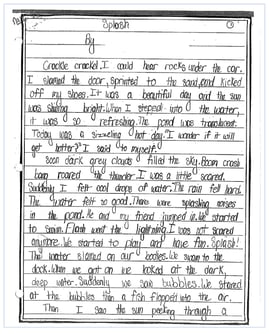
Narrative Writing Grade 6 Sample Splash!
Feedback for Improvement
What worked:
- There is a sense of story with a beginning, middle and end.
- The word choice is often high level - slammed, sprinted, flopped, tranquil, glistened
- Entertaining Beginning: There was a mix of sound, action and thought - the author established the setting - the pond on a hot day
- Elaborative Detail: There was plenty of elaborative detail - in the second paragraph, the author describes the setting - “Soon grey clouds filled the sky. Boom crash bang roared the thunder. I felt cool drops of water. We stared at the bubbles then a fish flopped into the air.”
- Extended Ending : The author used a mix of memory, hope and thought.
Can you summarize this story?
This is a story about ______________.
The problem/adventure was _____________.
The problem was solved/adventure concluded when ___________.
Feedback with Prescriptive Lesson: CHOOSE a Focus Skill:
- Section 1 Lesson 1: Introducing Graphic Organizers with Summarizing Framework
- Section 1 Lesson 9: Annotating Narrative Stories - build foundation for story writing
- Section 1 Lesson 11: Analyzing Assignments for Givens and Variables - creating pre-writing plans
Suspense: There was some evidence of suspense in the word “Suddenly,” however, it would improve the writing to add a magic of three as the thunderstorm rolled in.
- Section 4 Lesson 3: Red Flag Words and Phrases
- Section 4 Lesson 4: The Magic of Three
Main Event: What appears to be the main event is mostly description with some very general action. What was the main event of the story? Once that is established then add a balanced mix of action, description, thoughts/feelings, dialogue, and sound.
- Section 5 Lesson 1: Comparing Summaries
- Section 5 Lesson 2: Main Event
This student will benefit from participating in modeled lessons to develop the middle of the story- both suspense and main event.
Recommended Resources
- Empowering Writer's Methodology
- Narrative Writing Guide for Grade 6

Bumi Gemilang
Blog Pendidikan dan Informasi
Bahasa Inggeris (English) Sekolah Rendah: Samples of Essay Writing
Bahasa Inggeris (English) Sekolah Rendah : Samples of Essay Writing/ Karangan Bahasa Inggeris. UASA. Tahun / Year 1, 2, 3, 4, 5, 6. Sekolah Rendah. Primary School. (02) (3/3)
Koleksi Contoh Karangan Bahasa Inggeris (English Essays) Sekolah Rendah
Better To Be Safe Than Sorry Essay
Catching Crabs
Climbing A Mountain
Drug Abuse: Problems And Solutions
Encounter A Thief
Essay on Healthy Lifestyle
Essay on Helping Mother In The Kitchen
Essay on Mother’s Day In English For School Kids and Children Mother’s
Essay on My Best Friend – 7 Selected Essays on My Best Friend
Experience of Waiting For A Bus At A Bus Station
Fishing In The Moonlight
Frightened By A Snake On A Tree
Frightened By Buffaloes
Frightened By Dogs
Frightful Movement In My Room
Frightful Movements In The Bush
Games I Like To Play
Hari Raya Celebrations
Helping A Handicapped Man Essay
Helping A Little Lost Girl Essay
Honesty Is The Best Policy Essay
How To Avoid Being A Victim Of Cyberbullying Essay
How To Defend Your Homes From Burglars (Speech)
How To Do Well In Examination (Informal Letter)
How To Reduce Air Pollution Essay
How You Can Save The Environment Essay
If I Were A Millionaire
Informal Letter: Wr ite A Letter To Your Mother Asking For Some Money
Leading A Healthy Lifestyle (Speech)
Letter Of Complaint: Hygiene Conditions At Hawker Centre
Letter Of Complaint: Request For Broken Item Replacement
Memories Of My Childhood Days
My Best Friend
My Best Pal (Friend)
My Daily Routine Free School (English Essay)
My Favourite Teacher
My Holiday Experience (Essay)
Our School Exhibition
Pinched By A Crab
Police Report On Accident (Directed Writing)
Recess Time In Our School
Rescued By A Mobile Phone Essay
Road Accident
Sad After A Film Show
Saved By Friends
Saved By Policemen
Saving Money Is A Good Habit
Short Essay on Advantages And Disadvantages Of Computers
Some Money I Found
Staying Fit and Healthy
Teachers’ Day (2)
The Need For Self Discipline
The Night Market
The Person I Admire Most
Things I Like To Do
Tips On How To Improve Your Reading Habit
Why Should We Have Good Manners ?
A Birthday Celebration You Enjoyed
A Day At The Seaside
A Failed Prank Essay
A Festival You Enjoy Essay
A Fire Essay
A Flood Essay
A Frightful Experience
A Journey You Enjoyed
A Memorable Experience (1)
A Memorable Experience (2)
A Narrow Escape
A Night In A Car
A Painful Lesson
A Road Accident (1)
A Road Accident You Witnessed Essay
A Robbery I Saw
A Speech Of “The Disadvantages of smoking and Tips to stop Smoking”
A Squatter Fire
A Terrifying Experience
A Wedding I Attended
Addicted To Computer Games Essay
An Accident I Have Seen
An Accident That Made Me Unhappy
An Earthquake
An Event I Cannot Forget
An Exciting Day
An Exciting Night
An Unforgettable Incident (1)
An Unforgettable Incident (2)
Attacked By Bees
Ban On Underage Smokers
Be A Wise Shopper
……………………………………………………………………………………
- 50 Contoh Karangan Bahasa Inggeris Sekolah Rendah
- Modul Bahasa Inggeris Tahun 4, 5, 6 (English Module Paper 2) + Answer
- Year 4, 5, 6 Writing Module (Sentence Construction) (Penulisan)
- Bahasa Inggeris Penulisan Tahun 4, 5, 6 Bahagian B: Soalan 2 + Jawapan
- Bahasa Inggeris Penulisan Tahun 4, 5, 6 : Bahagian A + Jawapan
…………………………………………………………………………………….
- Koleksi Karangan Bahasa Melayu, Bahasa Inggeris (English Essays), Bahasa Arab, Pengajian Am : SPM, STPM, MUET, Tingkatan 1, 2, 3, 4, 5, 6, Tahun 1, 2, 3, 4, 5, 6
…………………………………………………………………………………………
- Improve Your Spelling: Frequently Misspelled Words (1)
- Improve Your Spelling: Frequently Misspelled Words (2)
- Improve Your English : Frequently Confused Words (1)
- Improve Your English : Frequently Confused Words (2)
- Improve Your English : Frequently Confused Words (3)
- Improve Your English : Frequently Confused Words (4)
- Improve Your English : Frequently Confused Words (5)
- Sample of Excellent Essay Writing for Section C – Paper 2
- Contoh Karangan Bahasa Inggeris Mudah (BI) (Simple English Essays)
………………………………………………………………………………..
- Koleksi Soalan dan Latihan Tahun 1 + Jawapan
Koleksi Soalan dan Latihan Tahun 2 + Jawapan
Koleksi soalan dan latihan tahun 3 + jawapan, koleksi soalan dan latihan tahun 4 + jawapan, koleksi soalan dan latihan tahun 5 + jawapan.
Koleksi Soalan dan Latihan Tahun 6 + Jawapan
- Koleksi Buku Teks Digital KSSR Tahun 1 (Satu)
- Koleksi Buku Teks Digital KSSR Tahun 2 (Dua)
- Koleksi Buku Teks Digital KSSR Tahun 3 (Tiga)
- Koleksi Buku Teks Digital KSSR Tahun 4 (Empat)
- Koleksi Buku Teks Digital KSSR Tahun 5 (Lima)
- Koleksi Buku Teks Digital KSSR Tahun 6 (Enam)
- Koleksi Soalan dan Latihan Sains (Science) Tahun 6 + Jawapan
- Koleksi Soalan dan Latihan Matematik (Mathematics) Tahun 6 + Jawapan
- Koleksi Soalan dan Latihan Bahasa Melayu (BM) Tahun 6 + Jawapan
- Koleksi Soalan dan Latihan Bahasa Inggeris (English) Tahun 6 + Jawapan
- Koleksi Soalan dan Latihan Pendidikan Islam Tahun 6 + Jawapan
- Koleksi Soalan dan Latihan Sejarah Tahun 6 + Jawapan
- Koleksi Soalan dan Latihan TMK dan RBT Tahun 6 + Jawapan
- Koleksi Soalan dan Latihan Bahasa Arab Tahun 6 + Jawapan
- Koleksi Soalan dan Latihan Pendidikan Jasmani Tahun 6 + Jawapan
- Koleksi Soalan dan Latihan Pendidikan Kesihatan Tahun 6 + Jawapan
- Koleksi Soalan dan Latihan Bahasa Cina Tahun 6 + Jawapan
…………………………………………………………………………………..
- Koleksi Soalan dan Latihan Bahasa Melayu Tahun 5 + Jawapan
- Koleksi Soalan dan Latihan Bahasa Inggeris Tahun 5 + Jawapan
- Koleksi Soalan dan Latihan Matematik Tahun 5 + Jawapan
- Koleksi Soalan dan Latihan Sains Tahun 5 + Jawapan
- Koleksi Soalan dan Latihan Pendidikan Islam Tahun 5 + Jawapan
- Koleksi Soalan dan Latihan Sejarah Tahun 5 + Jawapan
- Koleksi Soalan dan Latihan TMK dan RBT Tahun 5 + Jawapan
- Koleksi Soalan dan Latihan Bahasa Arab Tahun 5 + Jawapan
- Koleksi Soalan dan Latihan Pendidikan Moral Tahun 5 + Jawapan
- Koleksi Soalan dan Latihan Pendidikan Kesihatan Tahun 5 + Jawapan
- Koleksi Soalan dan Latihan Bahasa Cina Tahun 5 + Jawapan
- Koleksi Soalan dan Latihan Pendidikan Jasmani Tahun 5 + Jawapan
- Koleksi Soalan, Latihan dan Soalan Percubaan UPKK + Jawapan (Tahun 5)
……………………………………………………………………………………………
- Koleksi Soalan dan Latihan Bahasa Melayu Tahun 4 + Jawapan
- Koleksi Soalan dan Latihan Bahasa Inggeris Tahun 4 + Jawapan
- Koleksi Soalan dan Latihan Matematik Tahun 4 + Jawapan
- Koleksi Soalan dan Latihan Sains Tahun 4 + Jawapan
- Koleksi Soalan dan Latihan Pendidikan Islam Tahun 4 + Jawapan
- Koleksi Soalan dan Latihan Pendidikan Jasmani dan Pendidikan Kesihatan Tahun 4 + Jawapan
- Koleksi Soalan dan Latihan Sejarah Tahun 4 + Jawapan
- Koleksi Soalan dan Latihan Pendidikan Muzik Tahun 4 + Jawapan
- Koleksi Soalan dan Latihan Bahasa Cina Tahun 4 + Jawapan
- Koleksi Soalan dan Latihan Bahasa Arab Tahun 4 + Jawapan
- Koleksi Soalan dan Latihan TMK dan RBT Tahun 4 + Jawapan
…………………………………………………………………………………………
- Koleksi Soalan dan Latihan Bahasa Melayu Tahun 3 + Jawapan
- Koleksi Soalan dan Latihan Bahasa Inggeris Tahun 3 + Jawapan
- Koleksi Soalan dan Latihan Matematik Tahun 3 + Jawapan
- Koleksi Soalan dan Latihan Sains Tahun 3 + Jawapan
- Koleksi Soalan dan Latihan Pendidikan Islam Tahun 3 + Jawapan
- Koleksi Soalan dan Latihan Bahasa Arab Tahun 3 + Jawapan
- Koleksi Soalan dan Latihan Bahasa Cina Tahun 3 + Jawapan
- Koleksi Soalan dan Latihan Pendidikan Jasmani Tahun 3 + Jawapan
- Koleksi Soalan dan Latihan Pendidikan Kesihatan Tahun 3 + Jawapan
- Koleksi Soalan dan Latihan Bahasa Melayu Tahun 2 + Jawapan
- Koleksi Soalan dan Latihan Bahasa Inggeris Tahun 2 + Jawapan
- Koleksi Soalan dan Latihan Matematik Tahun 2 + Jawapan
- Koleksi Soalan dan Latihan Sains Tahun 2 + Jawapan
- Koleksi Soalan dan Latihan Pendidikan Islam Tahun 2 + Jawapan
- Koleksi Soalan dan Latihan Bahasa Arab Tahun 2 + Jawapan
- Koleksi Soalan dan Latihan Bahasa Cina Tahun 2 + Jawapan
- Koleksi Soalan dan Latihan Bahasa Tamil Tahun 2 + Jawapan
Koleksi Soalan dan Latihan Tahun 1 :
- Koleksi Soalan dan Latihan Bahasa Melayu Tahun 1 + Jawapan
- Koleksi Soalan dan Latihan Bahasa Inggeris Tahun 1 + Jawapan
- Koleksi Soalan dan Latihan Matematik Tahun 1 + Jawapan
- Koleksi Soalan dan Latihan Sains Tahun 1 + Jawapan
- Koleksi Soalan dan Latihan Pendidikan Islam Tahun 1 + Jawapan
- Koleksi Soalan dan Latihan Pendidikan Jasmani Tahun 1 + Jawapan
- Koleksi Soalan dan Latihan Bahasa Arab Tahun 1 + Jawapan
- Koleksi Soalan dan Latihan Bahasa Cina Tahun 1 + Jawapan
- Koleksi Soalan dan Latihan Pendidikan Kesihatan Tahun 1 + Jawapan
- KOLEKSI Soalan Peperiksaan Percubaan Tahun 4, 5, 6 + Skema Jawapan
- Koleksi Nota Ringkas dan Padat, Soalan, Latihan, KBAT, Peperiksaan, Ujian Tingkatan 1, 2, 3, 4, 5, 6 dan Tahun 1, 2, 3, 4, 5, 6
…………………………………………………………………………………………….
- Tahun 1, 2, 3, 4, 5, 6 : Soalan, Nota, Peperiksaan, Ujian, Bahan Rujukan Penting Semua Subjek
- Bahan-Bahan Rujukan Penting dan Berguna untuk Subjek-Subjek Utama SPM, Tingkatan 1, 2, 3, 4, 5, dan Tahun 1, 2, 3, 4, 5, 6
- Koleksi Karangan Bahasa Melayu, Bahasa Inggeris (English Essays), Bahasa Arab, PA : SPM, STPM, MUET, Tingkatan 1, 2, 3, 4, 5, 6, dan Tahun 1, 2, 3, 4, 5, 6
- Doa-Doa Amalan Menghadapi Ujian dan Peperiksaan + Amalan Pelajar Cemerlang (PU)
- 18 Tips, Teknik dan Kaedah Belajar Secara Efektif
Untuk mendapatkan segala Maklumat Terkini atau Updates blog Bumi Gemilang :
(1) Follow / Like Bumi Gemilang Facebook Page .
- https://www.facebook.com/BumiGemilang2
(2) Join / Sertai 2 Telegram Groups blog Bumi Gemilang .
- Join / Sertai 2 Telegram Groups To Follow Blog Bumi Gemilang
(3) Follow Twitter blog Bumi Gemilang .
- https://twitter.com/BumiGemilang
………………………………………………………………………………….
Terima Kasih kerana membaca post ini.
…………………………………………………………………………………
Please Share This Post :
Write a comment cancel reply.
WorkSheets Buddy
Download Math, Science, English and Many More WorkSheets

Essay for Class 6 Children | Essay Topics for Grade 6 Students in English
Not Everyone can frame their thoughts into sentences and write an Essay. Essay Writing is an art and is a great activity for Kids to enhance their overall personality. Check out Essay for Class 6 Students in English and have an idea on various topics that are commonly asked. Read and Practice Essay Writing Topics and bring out the imagination in you and write Essays on your own. 6th Grade Essays provided here are given by subject experts to make you familiar with essays from different categories.
List of English Essays for Students of 6th Std
If you are looking for a one-stop destination where you can find the Most Common Essay Topics for Grade 6 Students then this is the place. Check out the Essay Writing Ideas from different categories and choose as per your requirement. All you need to do is simply click on the respective topic link and avail the Short or Long Essay in it. You can surely improve your vocabulary and writing skills after referring to the Essays for 6th Class Students.
- Tree our Best Friend Essay for Class 6
- How I Spent Winter Vacation for Class 6
- Christmas Essay for Class 6
- Essay on Republic Day for Class 6
- My Self Essay for Class 6
- My School Essay for Class 6
- My Favourite Book Essay for Class 6
- Essay on Health is Wealth for Class 6
- Essay on Importance of Computer for Class 6
- My Family Essay for Class 6
- Essay on Most Memorable Day of My Life for Class 6
- Essay on Punctuality for Class 6
- Essay on Global Warming for Class 6
- Essay on Importance of Reading for Class 6
- Essay on Child Labour for Class 6
- Unity in Diversity Essay for Class 6
- Essay on Indian Festivals for Class 6
- Essay on Save Electricity for Class 6
- Essay on Library for Class 6
FAQs on Essay for Class 6
1. Where do I get Good Essay Topics for Class 6?
You can get Good Essay Topics for Class 6 on our page through the quick links.
2. How to Improve Essay Writing?
All you have to do is read to plenty of essay topics out there and bring out the uniqueness in you and frame your thoughts into words and write essays.
3. Which is the Best Website that provides Essay Writing Topics of Class 6?
Worksheetsbuddy.com is a genuine portal and go-to place for many any Kind of Essay Topic for Students.
We wish the knowledge shared in Class 6 Essays helped you to express your thoughts. Feel free to use the Comment Box Below and suggest us the topics of your interest. We will look into your suggestions and add them at the earliest. Stay in touch with our site to learn about Essays of Frequently Aksed Topics for School going children.
Share this:
- Click to share on Twitter (Opens in new window)
- Click to share on Facebook (Opens in new window)
Leave a Comment Cancel reply
Notify me of follow-up comments by email.
Notify me of new posts by email.
Question and Answer forum for K12 Students

Essay Writing Topics For Class 6 Format, Examples, Topics, Exercises
Essay writing topics for class 6 in english.
Writing essays is a crucial part of the academic curriculum for students of all ages. As students progress through their academic journey, the complexity and length of essays increase. Class 6 students are typically expected to write essays that are between 500 and 1000 words long. The essays are usually written in a five-paragraph format and include an introduction, three body paragraphs, and a conclusion. In this article, we will discuss some essay writing topics for class 6 students, along with the English Grammar , format, and examples.
Also Read: Essay Writing For Class 8
Format Of Class 6 Essays:
Before we start discussing the essay topics, let’s take a look at the format of class 6 essays.
Introduction:
The introduction should be a brief paragraph that provides an overview of the topic. It should include a thesis statement that tells the reader what the essay is about.
Body Paragraphs:
The body paragraphs should be three in number, and each paragraph should focus on a specific idea related to the topic. Each paragraph should have a topic sentence that introduces the idea and supporting details that explain and support the topic sentence.
Conclusion:
The conclusion should be a summary of the main points discussed in the essay. It should restate the thesis statement and provide a final thought on the topic.
Essay Writing Topics For Class 6:
1. My Favorite Season 2. My Favorite Animal 3. My Best Friend 4. My Favorite Sport 5. My Favorite Food 6. My School Life 7. My Family 8. The Importance of Reading 9. My Favorite Movie 10. My Favorite Book 11. My Hobby 12. My Role Model 13. The Importance of Discipline 14. My Dreams and Aspirations 15. The Importance of Education 16. My Favorite Holiday 17. My Favorite Teacher 18. My Favorite Place 19. My Favorite Subject 20. My Favorite Color
Examples Of Essay Writing Topics For Class 6:
1. My Favorite Season:
My favorite season is winter. I love the cold weather, and I get excited when the first snowfall arrives. I enjoy making snowmen and having snowball fights with my friends. I also love the holidays that come during winter, such as Christmas and New Year’s. During winter break, my family and I like to go skiing, and we have a lot of fun together.
2. My Best Friend:
My best friend’s name is Sarah. We have been friends since kindergarten, and we have a lot in common. We both love animals and enjoy playing video games together. We also enjoy playing soccer and often compete against each other. Sarah is always there for me when I need her, and I feel lucky to have her as my best friend.
3. The Importance of Reading:
Reading is very important because it helps improve our vocabulary and comprehension skills. It also stimulates our imagination and creativity. By reading, we can learn about different cultures and explore new ideas. Reading is also a great way to relax and escape from our daily stresses.
Recommended Reading: Essay Writing Topics For Class 6
Conclusion On Essay Writing Topics For Class 6:
Writing essays is an essential skill for students to develop, and by practicing writing on different topics, students can become better writers. The above essay topics can be a starting point for class 6 students, and by following the essay format, they can write well-structured essays that effectively communicate their ideas.

35 Thought-Provoking Persuasive Writing Prompts For 6th Graders

Looking for a solid persuasive essay topic for your 6th grader?
The below post contains tons of great ideas that will get your 6th-grade students thinking, researching, debating, and writing!
I’m not talking about simple opinion writing topics – like their favorite food, favorite book, or how much money they should get for an allowance.
That is the the thing that my 3rd grade student would delight in arguing.
No, sixth graders are ready for more meaty topics that require a bit of research and thought. The more they dig into the topic and refine their point of view, the more they will sharpen their critical thinking and writing skills!
Don’t miss the free pdf printable at the bottom of this page with all of the ideas in one place!
Persuasive Writing Prompts For The 6th Grade Student

1. Is a dress code ever necessary?
In this prompt, students will be asked to take a stance on whether or not they think there is ever a time to enforce a dress code. Are there times when someone should be told how to dress? Such as a school dress code or wedding? Or should people be allowed to dress in any way that expresses themselves or their personality?
2. Should recycling be mandatory instead of suggested?
Students will be asked to consider whether the government should be more aggressive about recycling. They will be working with the concepts of the benefits of recycling vs. the freedoms of people.
3. Should vending machines ban junk food?
6th grade students will be asked to argue for or against the ban of junk food in vending machines. Vending machines are often used by people who are hungry and in a hurry. The vending options are usually less than healthy. Should vending machine owners be required to provide better choices? Or should they be allowed to stock their machines as they see fit?
4. Is it okay to keep exotic animals as pets?
This persuasive topic will have students take a stance on whether or not it is a good idea to keep exotic animals as pets. They will need to consider the benefits and drawbacks of keeping exotic pets and present a strong argument for their position. Make sure the student has a good understanding of the topic and the different types and sizes of animals that some people keep as pets.
5. Should the federal government impose a tax on sugary drinks?
In this prompt, students will be asked to argue for or against a government tax on sugary drinks – similar to the tax on cigarettes. They will need to consider the potential benefits of such a tax. What would the tax money be spent on? Or should people be free to drink any kind of beverage they wish, no matter how healthy or unhealthy?
6. Should life skills be a greater focus for education?
In this prompt, students will be asked to take a stance on what should be taught in school. Should the schools be doubling down on the basics of reading, writing, and math since test scores have dipped? Or should schools start allotting more time for important life skills, like time management, personal finance, and cooking, which are things many young adults struggle with.
7. Should there be age limits to use social media?
Students will list specific reasons why there should or should not be age restrictions for facebook pages and other forms of social media.
8. Is it important to save endangered species?
Students will be asked argue why enndangered animals should or should not be protected. They may be quick to make up their mind, but make sure they do research and find factual reasons that support their opinions.
9. Should video games be considered a sport?
Even though video games do not require the physical activity of traditional sports, does it still require focus, skill, and grit that would make it a modern sport? Or should that title only be awarded to an activity that requires you to sweat?
10. Should there be a ban on plastic bags?
Everyone knows plastic bags are bad for the environment, but should they be banned? What would the alternative be?
11. Is it necessary to have physical books anymore?
In the age of digital everything, are paper books still necessary? College students are already buying digital books instead of expensive physical ones. What benefits would come from doing away with paper books? What drawbacks would there be for those without a computer or solid internet?
12. Is it important to teach physical education in schools?
What is the goal of physical education? Does it have a place in the academic environment of education? Should those things be taught at home or on a sports team instead of during school hours? Shouldn’t physical activity be optional? Or is PE a vital piece of knowledge for a well-rounded education?
13. Should zoos be banned?
Do zoos raise money and awareness for animal conservation…or do they imprison animals for a lifetime that should be free and in the wild?
14. Should recess be scheduled for all kids in school? Even high school students?
What are the benefits of taking an outside break with fresh air for students? Are other subjects too important to sacrifice the time? Could older students be more productive with some sunshine and fresh air during the day?
15. If a student has good grades all school year, should they still have to take standardized tests?
If a student has shown that they are learning and progressing academically, should they have to take a long standardized test? Are there other reasons to take these tests?
16. Is hunting cruel to animals?
Most people buy their meat at grocery stores these days, so is there really any reason to still hunt animals? Does harvesting animals keep humans safe? Or does it make sport of animal lives?
17. Should gas powered cars be outlawed?
Fossil fuels are wreaking havoc on the planet, so should gasoline powered vehicles become illegal? Are electric cars a better option? Do electric cars have any drawbacks?
18. Is a rewards program or discipline more effective to motivate students?
What incentivizes kids to dive into their work, when maybe they don’t want to? Is it a really strong rewards program that will motivate them to finish a difficult task? Or fear of a consequence if they don’t complete their work?
19. Should the United States require military service for men and women, like other countries do?
Many countries require their population to do some form of federal service. America has a draft registration for men, but not for women. Should both genders be required to serve our country? Would it strengthen our nation and our people to have a common experience with service? Or is it unfair to require people to pause their lives for 2 years during the prime of their youth?
20. Should healthcare be free for everybody?
Is it a human right to get healthcare for free? If the patient doesn’t pay, then who should pay for the treatment? What benefits and/or consequences could come from reshaping our healthcare system?
21. Should candy purchases be limited based on how many cavities you have?
Dental health is very serious. Should a kid’s candy be rationed based on their dental records? The more cavities, the less candy you can have – and vice versa?
22. Is it appropriate to let kids work at younger ages, like 10 or 12, if they can do the job?
Many kids today have a strong desire to work, make money, and be successful. We have child labor laws in place to protect kids, but could that be holding them back? If they can do a job, should they be allowed to be hired? Or would that be robbing a kid of their right to a carefree childhood?
23. Should foreign language be required in school or should it be one of the elective courses?
English is spoken nearly worldwide, as it is taught in many countries around the world. What benefits come from learning another language? Should students be able to choose another elective if they don’t want to learn a new language? Or should American children try harder to be multilingual?
24. Should students be allowed to use their cell phones during tests?
You cannot get away from cell phones these days. Even small children have them! They will be a readily available resource in most work places, so shouldn’t they be allowed during tests? Or are memorization and internalization of information important skills for students to learn?
25. Should plastic water bottles be banned?
Plastic water bottles are a huge problem in our environment. Should we outlaw them to help the Earth? What kind of things are one-use water bottles used for that might be important?
26. Is it more important to continue exploration of space or the ocean?
Many wonderful advancements and knowledge have come from space exploration, but we know precious little about our ocean which covers 2/3 of the planet. Should governments be investing money into finding what lies beneath the surface instead of what’s above our heads?
27. Should reading an analog clock still be taught in school?
Digital clocks are everywhere – on your phone, stove, microwave, computer, cable box. Do you really need to learn how an analog clock works anymore? Are there times that digital clocks may not be available? Or are they becoming as archaic as a sundial?
28. Is learning proper handwriting or fast typing more important in today’s world?
Many have stopped learning cursive handwriting, so should schools also stop focusing so much on print handwriting? Should kids be spending that time learning how to type on a keyboard instead?
29. Should the voting age be lowered so elementary school students can vote?
Kids today are developing opinions and beliefs at younger ages and want to be heard. Should we lower the voting age so that children can make more of a difference? Or are most children not quite ready to handle the responsibility of voting?
30. Should AI be allowed in writing school papers if calculators are allowed in math?
Many teachers are concerned about how to tell the difference between an AI-written essay and one written by a student. Should that be a concern? If math allows calculators, can’t English classes allow help from another form of artificial intelligence? What drawback could come from not expecting kids to write their own essays?
31. Are cell phones good or bad for your health?
Cell phones are common around the world now, but are they good for us? How do they benefit our health? How might they hurt our overall health?
32. Should bees become a protected species?
Many scientists have expressed concern about the dwindling number of bees. Should these important pollinators become a protected species like the bald eagle? Or is it unreasonable to expect a person not to kill a bee that is buzzing around them?
33. Is it ever appropriate to ban a book?
Many heated discussions have come up recently about banning books. Is there ever a time that certain books should be kept from kids – like an R rating on a movie? Or should kids be allowed to read whatever they are interested in? Should offensive content be censored or should it be learned from?
34. Should community service be required for kids, middle schoolers and up?
What good could come of requiring community service from children? Or should people only serve because they genuinely want to help their community?
35. Is reading or math more important in today’s world?
Which is a more crucial skill to master? Should kids be focused on reading at the highest levels? Or should they be focused on learning the language of math at the highest levels?
Click Here To Download A One Page PDF Printable Of All The Argumentative Essay Topics

The above text link will take you to a new window where you can download and print the topics today. No email required! Terms of Use : Homeschool, classroom, co-op, and personal use only.
These essay topics will go along with any persuasive writing unit in your writing curriculum ! Let your student go through the list and find the one that really gets them excited.
If you’re looking for more fun writing prompts, be sure to check out the picture writing prompts below. There are 40 images with corresponding text that will get your kid excited to write!

Leave a Reply Cancel reply
Your email address will not be published. Required fields are marked *

Activity: Perform a poem
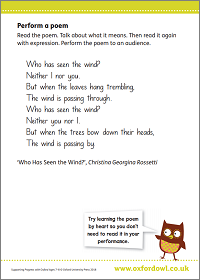
Read the poem, talk about what it means, and perform it to an audience.
5. Find story inspiration
You can find fun story ideas anywhere! Why not raid your kitchen cupboards or hunt through the attic to find lost treasures? Anything from an old hat to a telescope will do the trick. What could the object be used for? Who might be looking for it? What secrets could it hold? Suggest different genres such as mystery or science fiction and discuss how the item might be used in this kind of story.
Real-world facts can also be a great source of inspiration. For example, did you know a jumping flea can accelerate faster than a space rocket taking off into orbit? What crazy story can your child make out of this fact? Newspapers and news websites can be great for finding these sorts of ideas.
For more storytelling ideas, download our free Story idea generator or our Character profile activity sheet .
Activity: Story idea generator
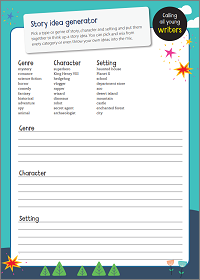
Activity: Character profile
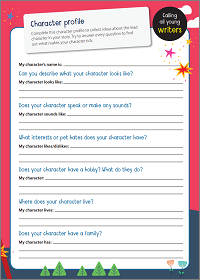
6. Draw your ideas first
If your child isn’t sure where to start with a story or even a piece of non-fiction, it can sometimes be helpful to sketch out their ideas first. For instance, can they draw a picture of a dastardly villain or a brave hero? How about a scary woodland or an enchanted castle?
Your child might also find it useful to draw maps or diagrams. What are all the different areas of their fantasy landscape called? How is the baddie’s base organised?
Some children might enjoy taking this idea a step further and drawing their own comics. This is great practice – it stretches your child’s creativity, gets them thinking about plot, character, and dialogue, and is a big confidence boost once they’ve finished and have an amazing story to look back on.
What your child will learn
In Year 6 (age 10–11), your child will be aiming to build upon the goals and expectations they were first set in Year 5. They will be expected to:
- Identifying the audience for and purpose of the writing
- Noting and developing initial ideas, drawing on reading and research where necessary.
- Selecting appropriate grammar and vocabulary, understanding how such choices can change and enhance meaning
- In narratives, describing settings, characters and atmosphere and integrating dialogue to convey character and advance the action
- Using a wide range of devices to build cohesion within and across paragraphs
- Using further organisational and presentational devices to structure text and to guide the reader (for example, headings, bullet points , and underlining).
- Assessing the effectiveness of their own and others’ writing
- Proposing changes to vocabulary, grammar and punctuation to enhance effects and clarify meaning
- Ensuring the consistent and correct use of tense throughout a piece of writing
- Ensuring correct subject and verb agreement when using singular and plural , distinguishing between the language of speech and writing and choosing the appropriate register.
- Proof-read for spelling and punctuation errors.
Handwriting, spelling, grammar, and punctuation are all important aspects of writing too. You can find out more about them on our dedicated pages:

Handwriting in Year 6 (age 10-11)
Find out more about handwriting in Year 6 at Primary School.
Find out more
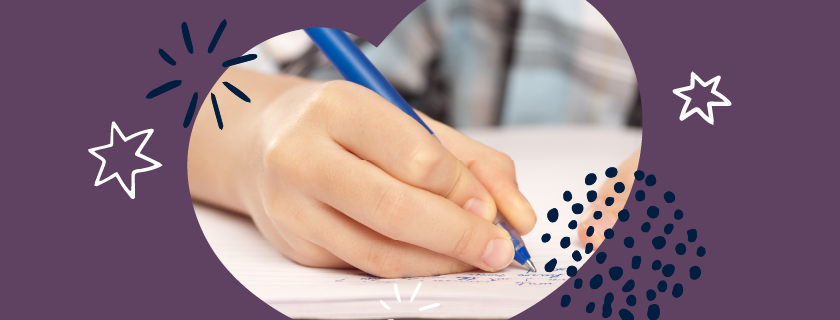
Spelling in Year 6 (age 10-11)
Find out more about spelling in Year 6 at Primary School.


Grammar and punctuation in Year 6 (age 10-11)
Find out more about grammar and punctuation in Year 6 at Primary School.
- Age 5–6 (Year 1)
- Age 6–7 (Year 2)
- Age 7–8 (Year 3)
- Age 8–9 (Year 4)
- Age 9–10 (Year 5)
- Age 10–11 (Year 6)
- Year 1 (age 5–6)
- Year 2 (age 6–7)
- Year 3 (age 7–8)
- Year 4 (age 8–9)
- Year 5 (age 9–10)
- Year 6 (age 10–11)
- Grammar glossary
- Grammar books
- Grades 6-12
- School Leaders
Don't Miss the Grand Prize: A $2,500 Office Depot/OfficeMax Card!
101 Interesting Persuasive Essay Topics for Kids and Teens
Use your words to sway the reader.
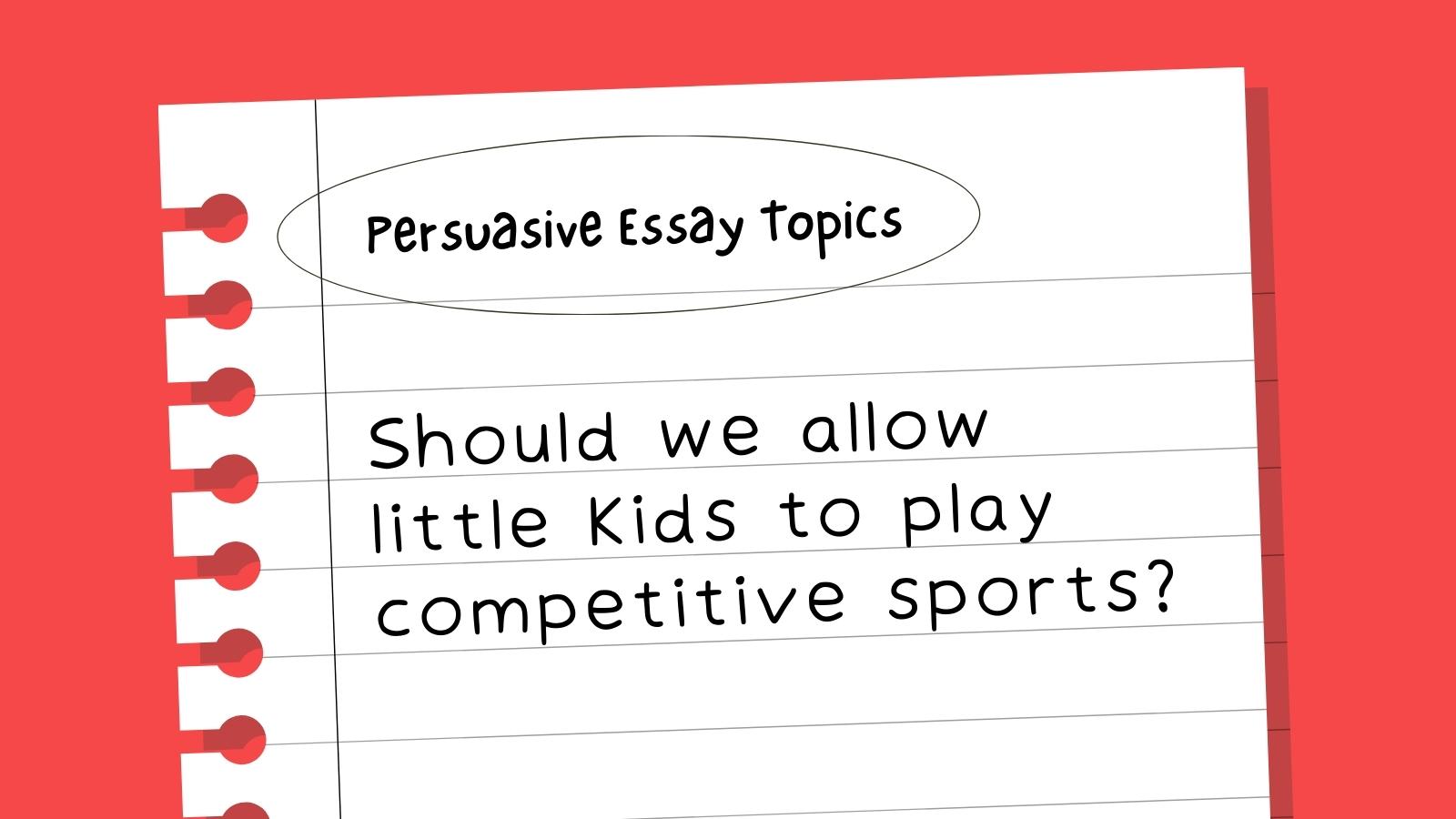
Persuasive writing is one of those skills that can help students succeed in real life. Persuasive essays are similar to argumentative , but they rely less on facts and more on emotion to sway the reader. It’s important to know your audience so you can anticipate any counterarguments they might make and try to overcome them. Try reading some mentor texts to show kids great examples of opinion writing. Then use these persuasive essay topics for practice.
School and Education Persuasive Essay Topics
Life and ethics persuasive essay topics, science and technology persuasive essay topics, sports and entertainment persuasive essay topics, just for fun persuasive essay topics.
- Do you think homework should be required, optional, or not given at all?

- Students should/should not be able to use their phones during the school day.
- Should schools have dress codes?
- If I could change one school rule, it would be …
- Is year-round school a good idea?
- Should we stop giving final exams?
- Is it better to be good at academics or good at sports?
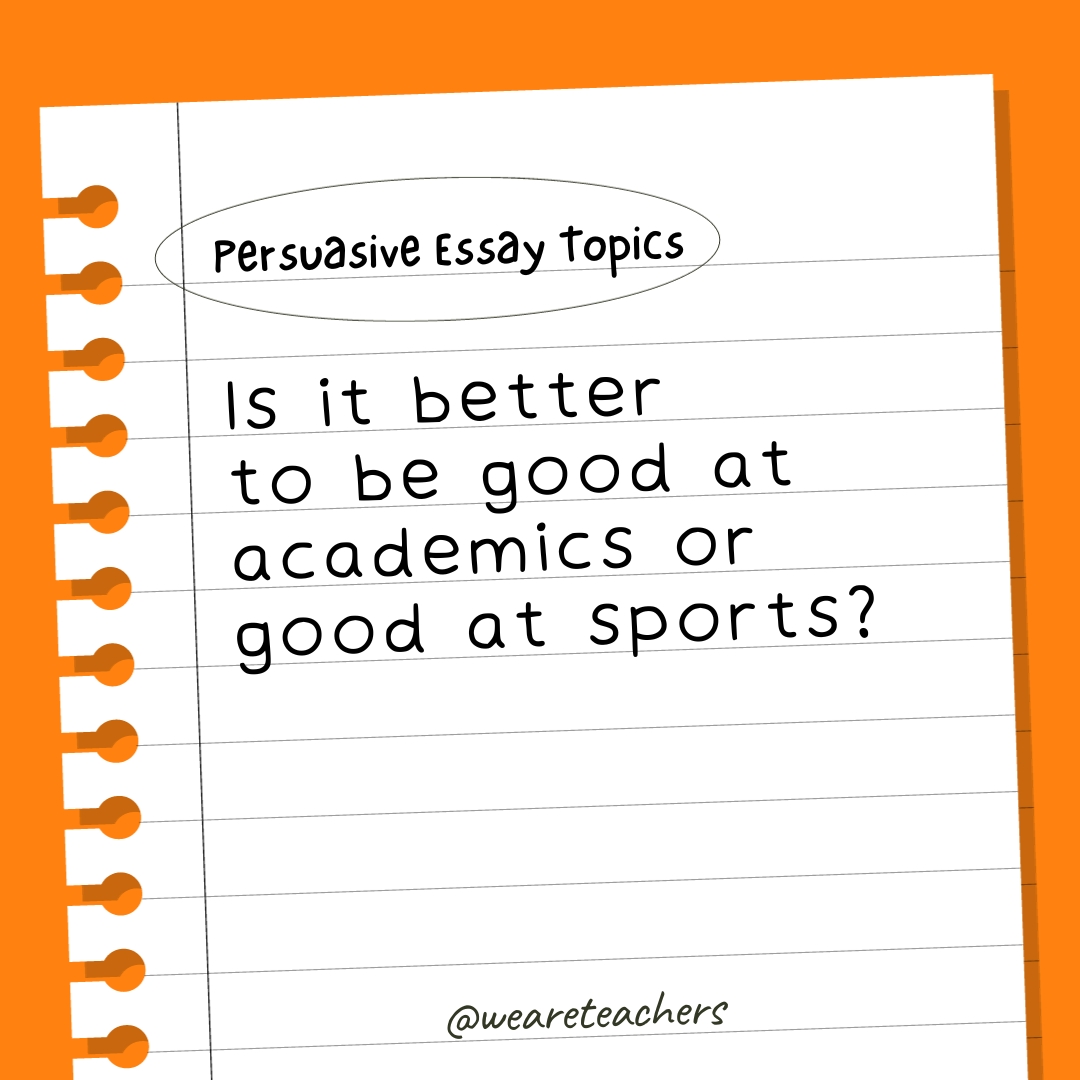
- Which is better, private schools or public schools?
- Should every student have to participate in athletics?
- Do you think schools should ban junk food from their cafeterias?
- Should students be required to volunteer in their communities?
- What is the most important school subject?
- Are letter grades helpful, or should we replace them with something else?
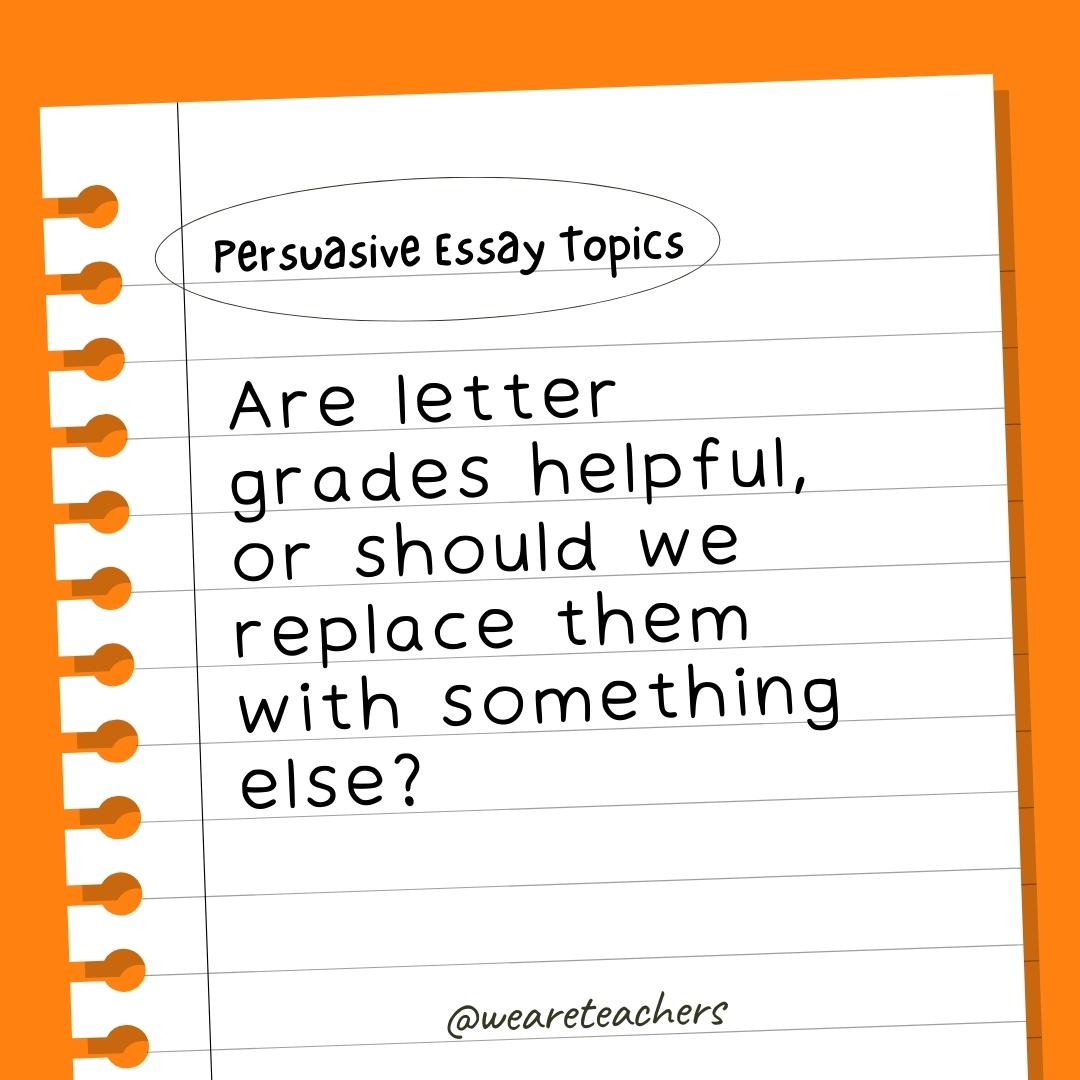
- Is it ever OK to cheat on homework or a test?
- Should students get to grade their teachers?
- Do you think college should be free for anyone who wants to attend?
- Should schools be allowed to ban some books from their libraries?
- Which is better, book smarts or street smarts?
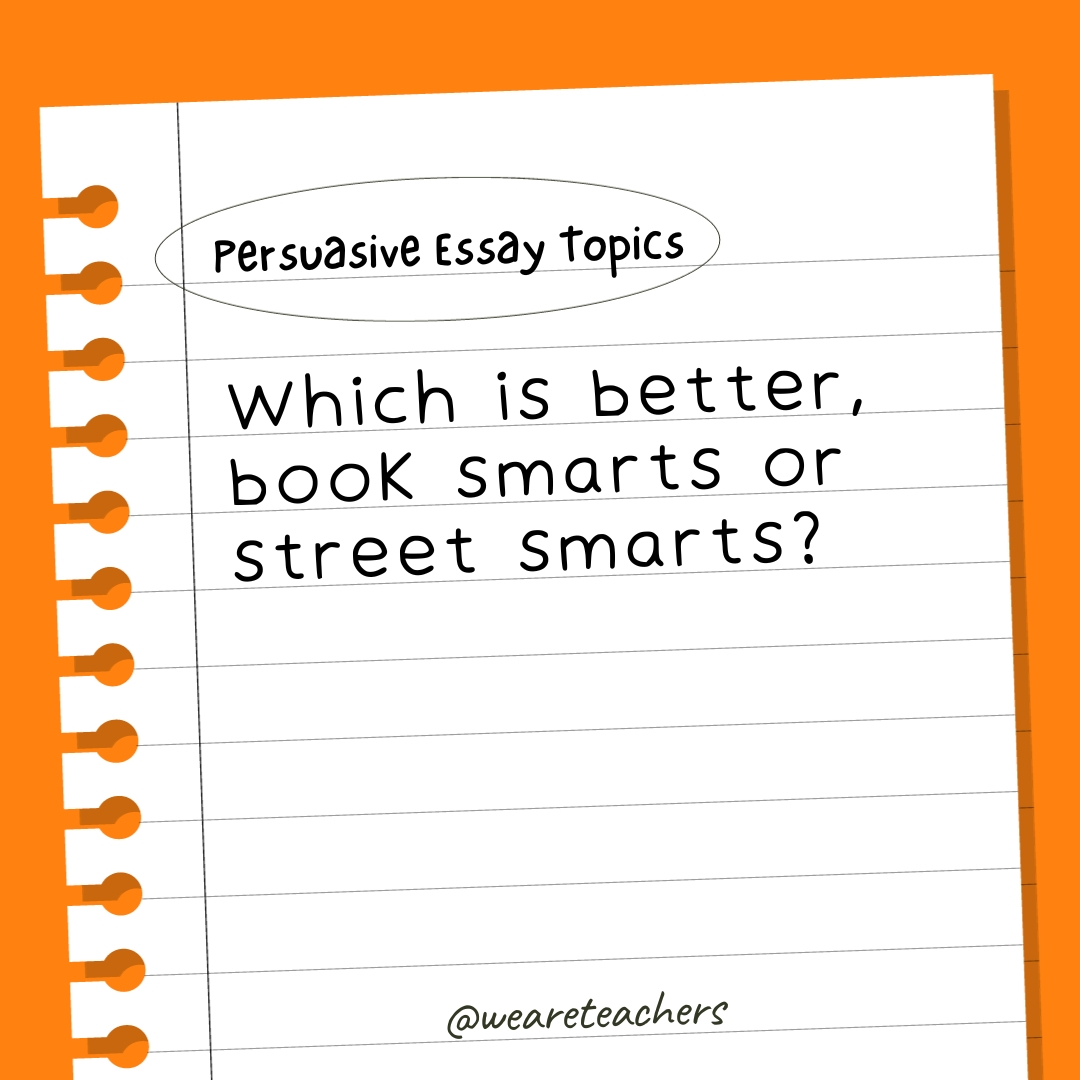
- Should all students have to learn a foreign language?
- Are single-gender schools better or worse for students?
- Is it OK to eat animals?
- What animal makes the best pet?
- Visit an animal shelter, choose an animal that needs a home, and write an essay persuading someone to adopt that animal.
- If you find money on the ground, should you try to find the person who lost it, or is it yours to keep?
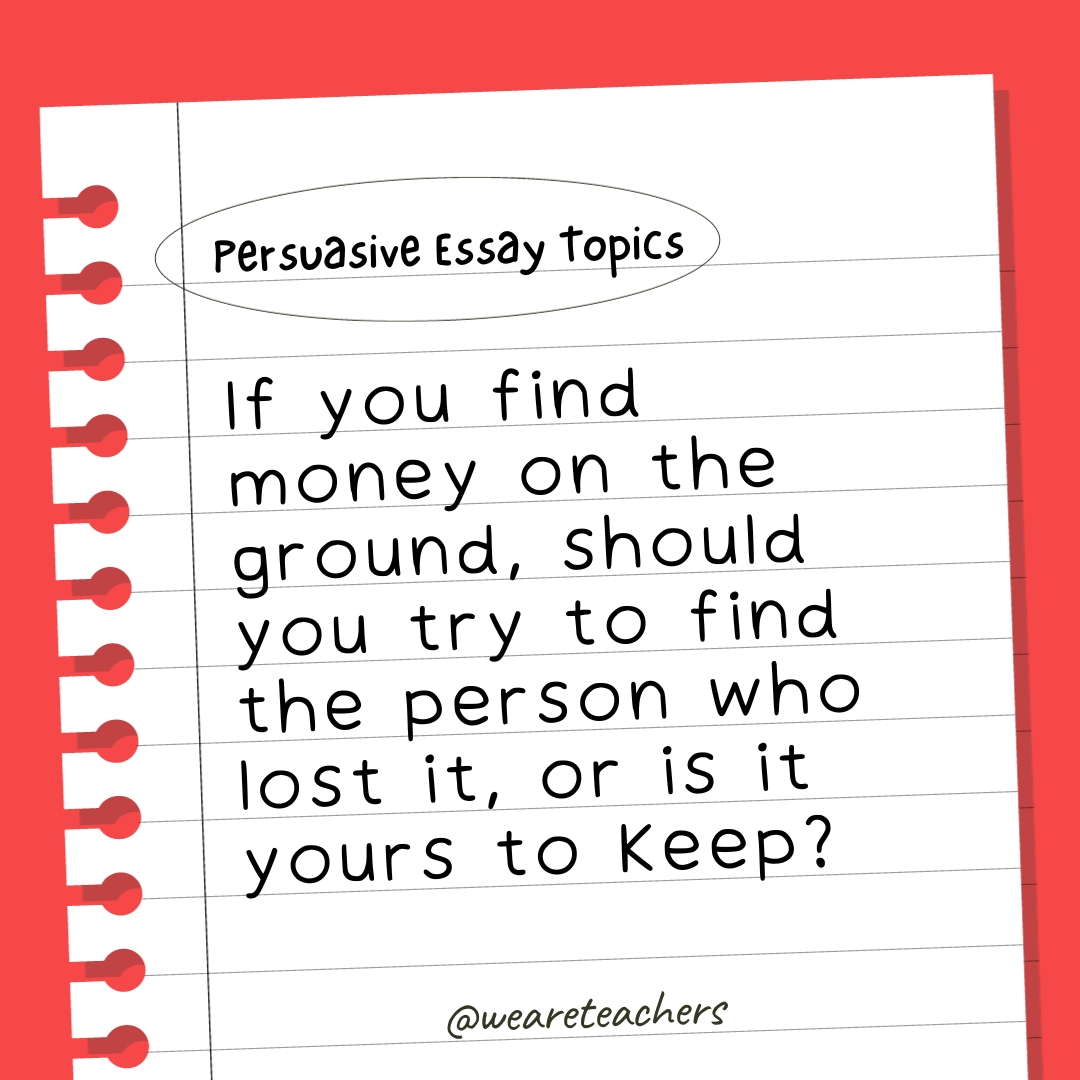
- Who faces more peer pressure, girls or boys?
- Should all Americans be required to vote?
- Is it better to be kind or truthful?
- Which is better, giving or receiving?
- Is it OK to keep animals in zoos?
- Should we change the minimum driving age in the United States?
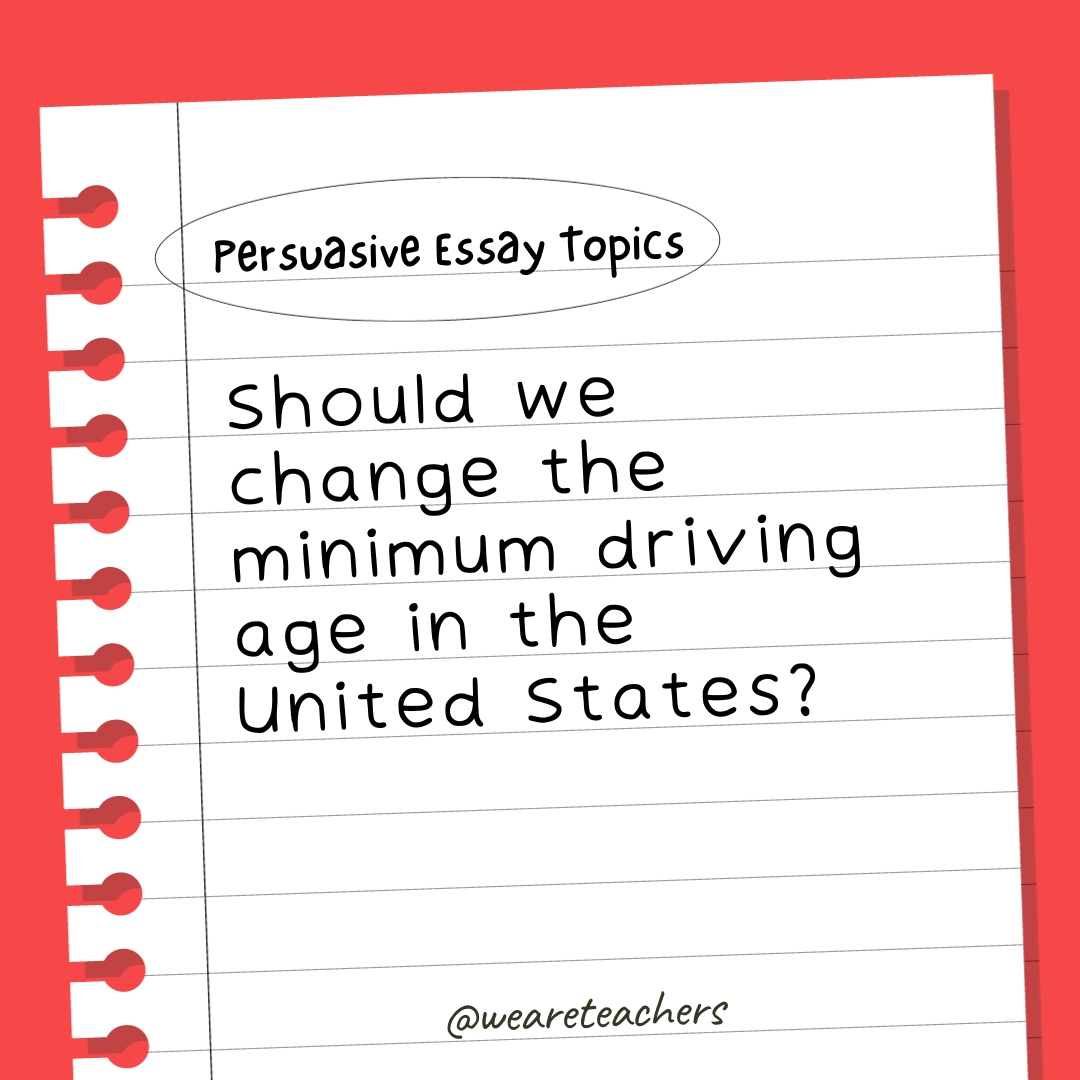
- Which is more important, happiness or success?
- Is democracy the best form of government?
- Is social media helpful or harmful?
- Should parents be punished for their children’s mistakes or crimes?
- Should kids have set bedtimes or just go to bed when they’re sleepy?
- Do you think the government should find a way to provide free health care for everyone?
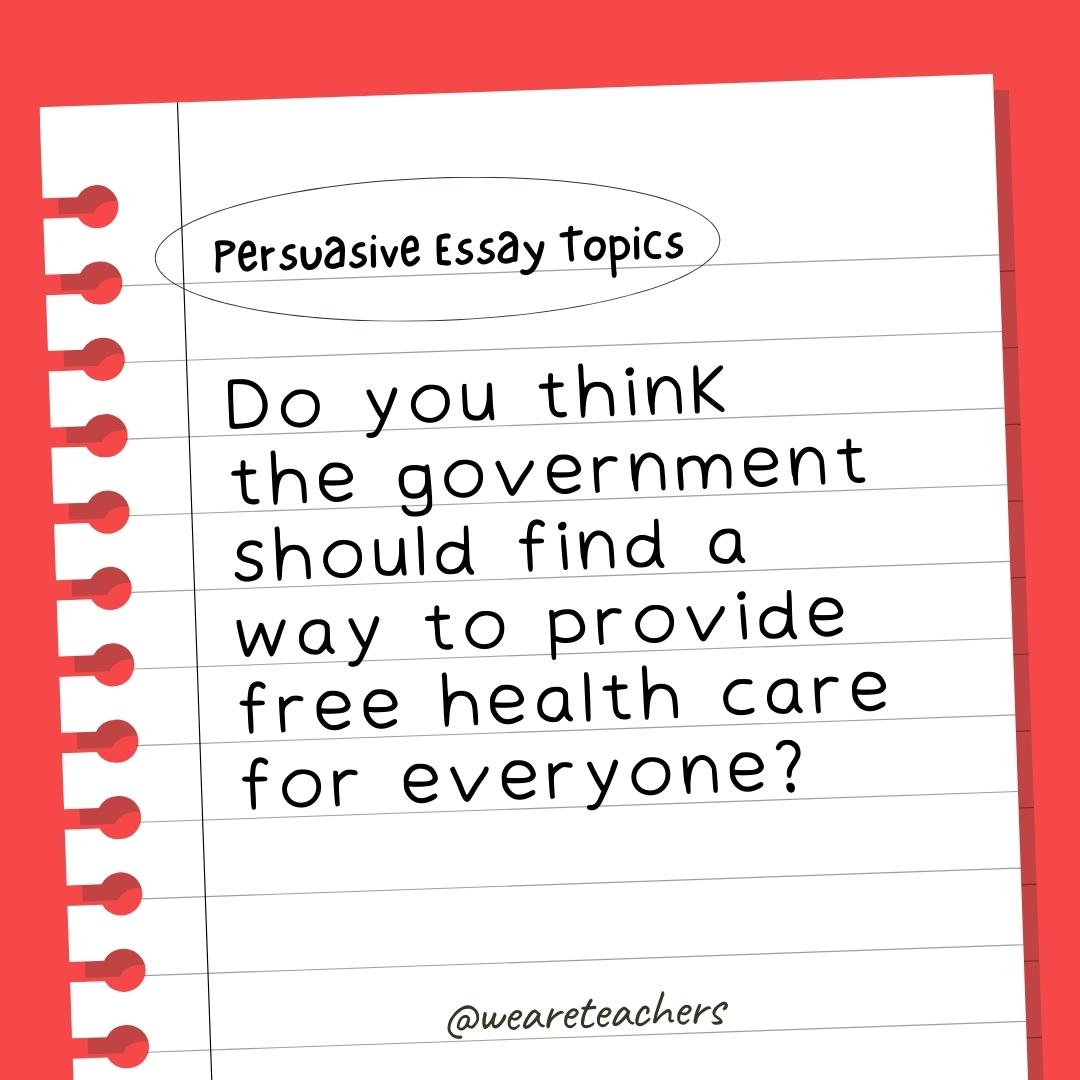
- Is it better to save your allowance or spend it?
- Should we ban plastic bags and bottles?
- Which is better, living in the city or in the country?
- If I could make a new law, it would be …
- Is Pluto a planet?
- Should human cloning be legal?
- Should vaccines be mandatory?
- Is it right for countries to still maintain nuclear weapon arsenals?
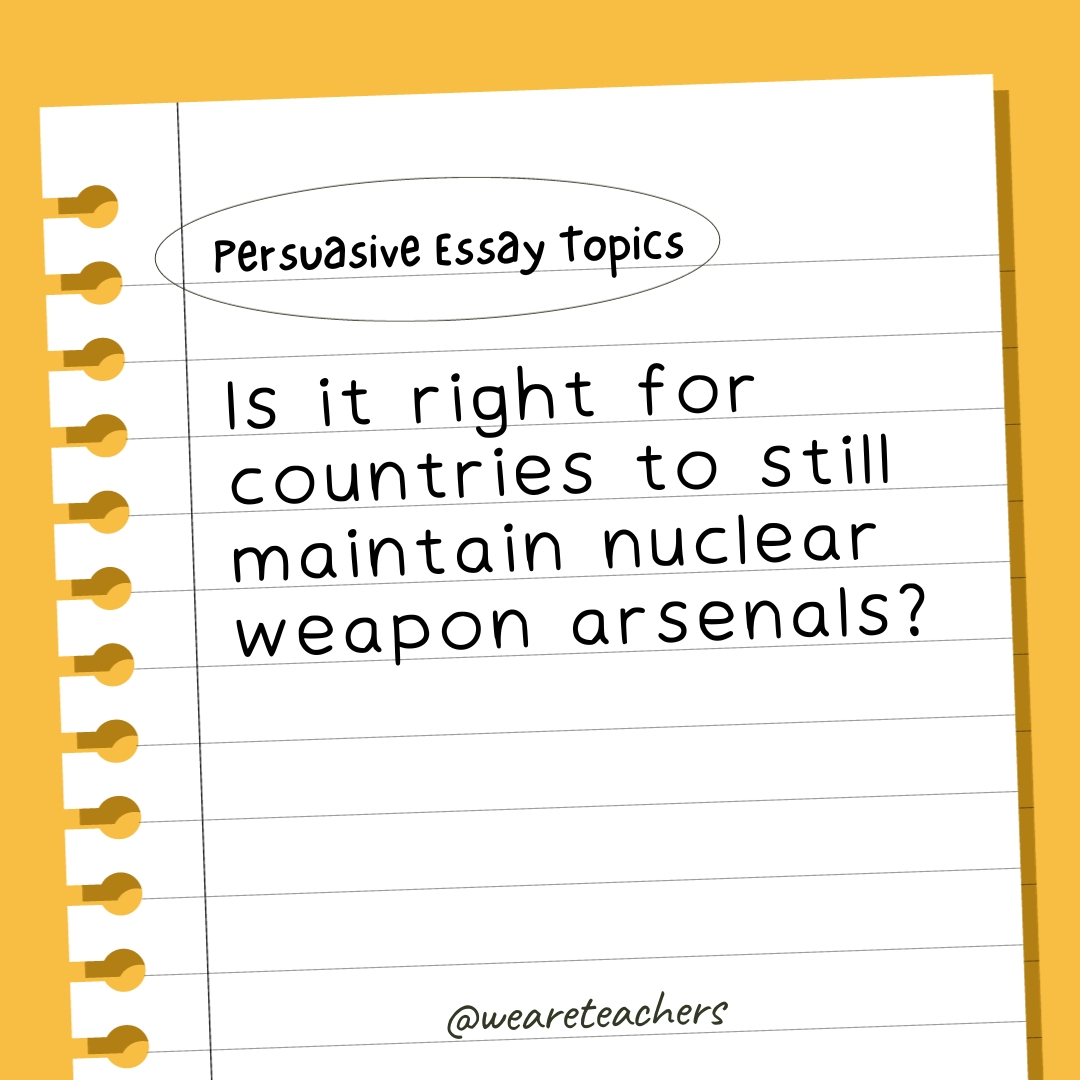
- Should testing on animals be made illegal?
- Will expanded use of artificial intelligence be good for humanity?
- Should all people have free Internet access in their homes?
- Is there intelligent life on other planets?
- Does technology create more jobs than it eliminates?
- Should parents use their children’s cell phones to track where they are?
- Should scientists try to develop a way for people to live forever?
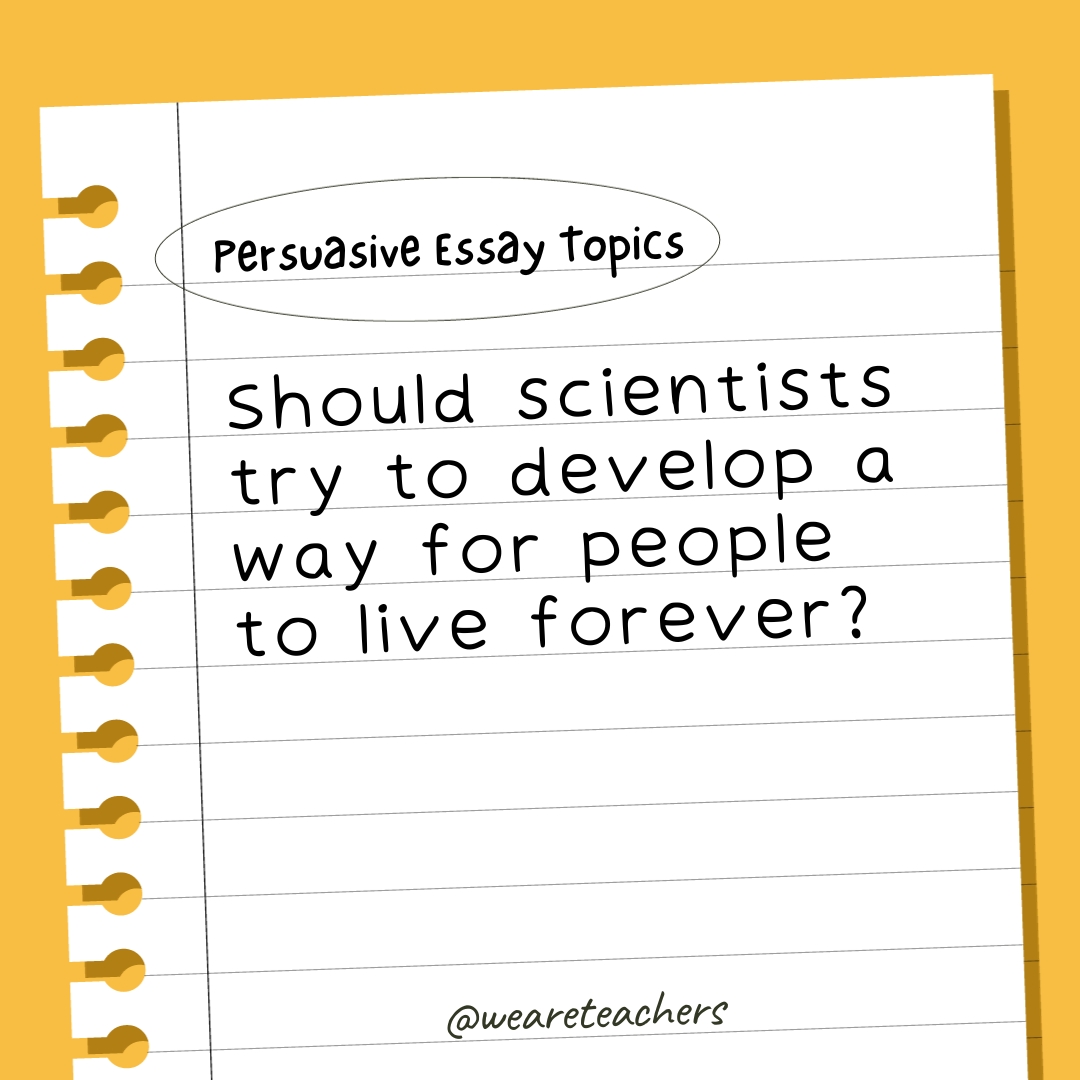
- What’s the best type of smartphone: Android or iPhone?
- Which is better, Macs or PCs?
- Do people rely too much on technology in the modern world?
- Should cryptocurrencies replace cash?
- Should there be a minimum age requirement to own a smartphone?
- Is it important to keep spending money on space exploration, or should we use the money for other things?

- Should kids under 13 be allowed to use social media sites?
- Should we ban cigarette smoking and vaping entirely?
- Is it better to be an animal that lives in the water or on land?
- Should kids be allowed to watch TV on school nights?
- Which is better, paper books or e-books?
- Is the current movie rating system (G, PG, PG-13, etc.) effective?
- Are video games better than board games?
- Should we allow little kids to play competitive sports?
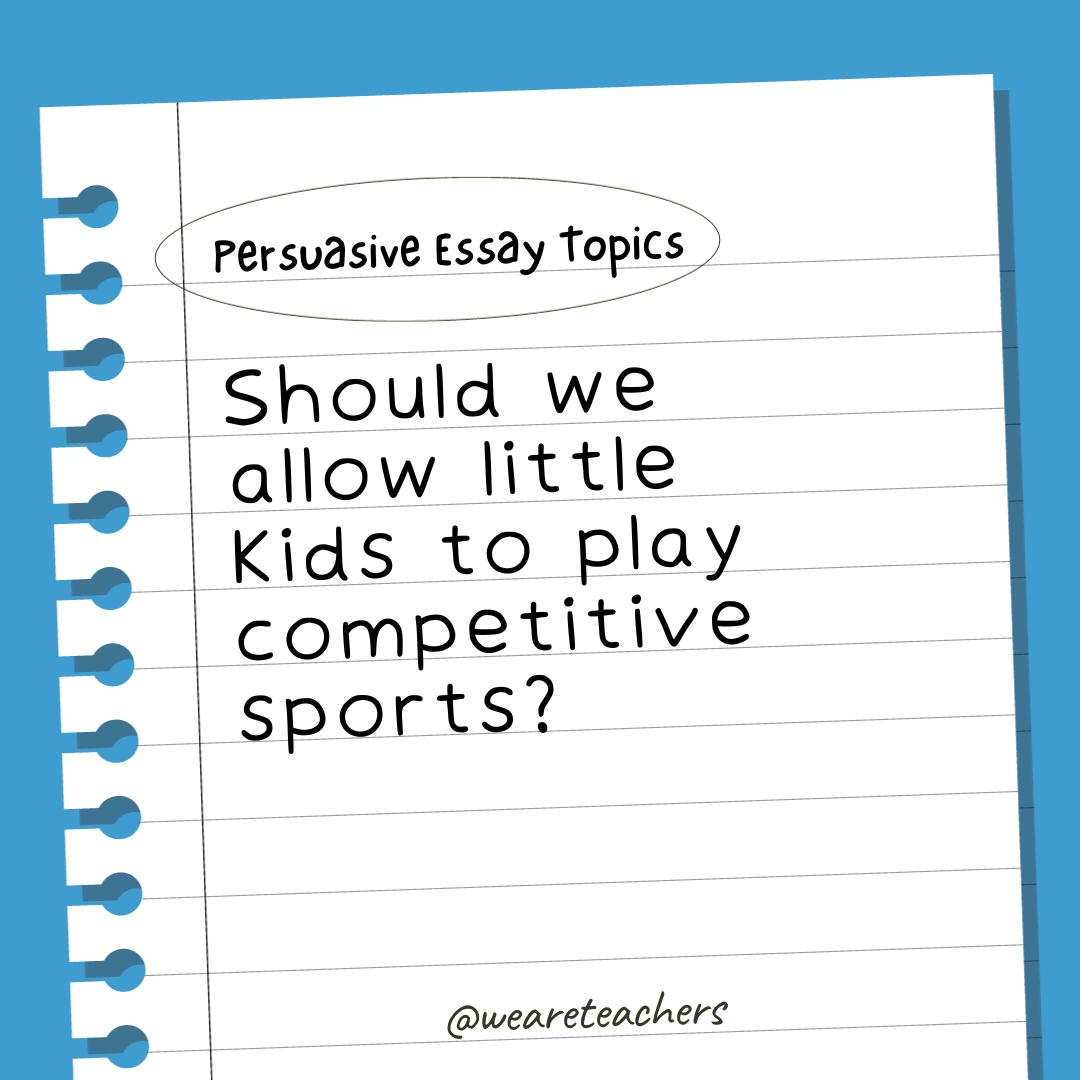
- Which is better, reading books or watching TV?
- Does playing violent video games make people more violent in real life?
- Are graphic novels just as valuable as traditional fictional books?
- Should everyone play on the same sports teams, regardless of gender?
- Choose a book that’s been made into a movie. Which was better, the movie or the book?

- Who is the world’s best athlete, present or past?
- Are professional athletes/musicians/actors overpaid?
- Which is better, fiction or nonfiction?
- The best music genre is …
- What is one book that everyone should read?
- What new sport should be added to the Olympics?
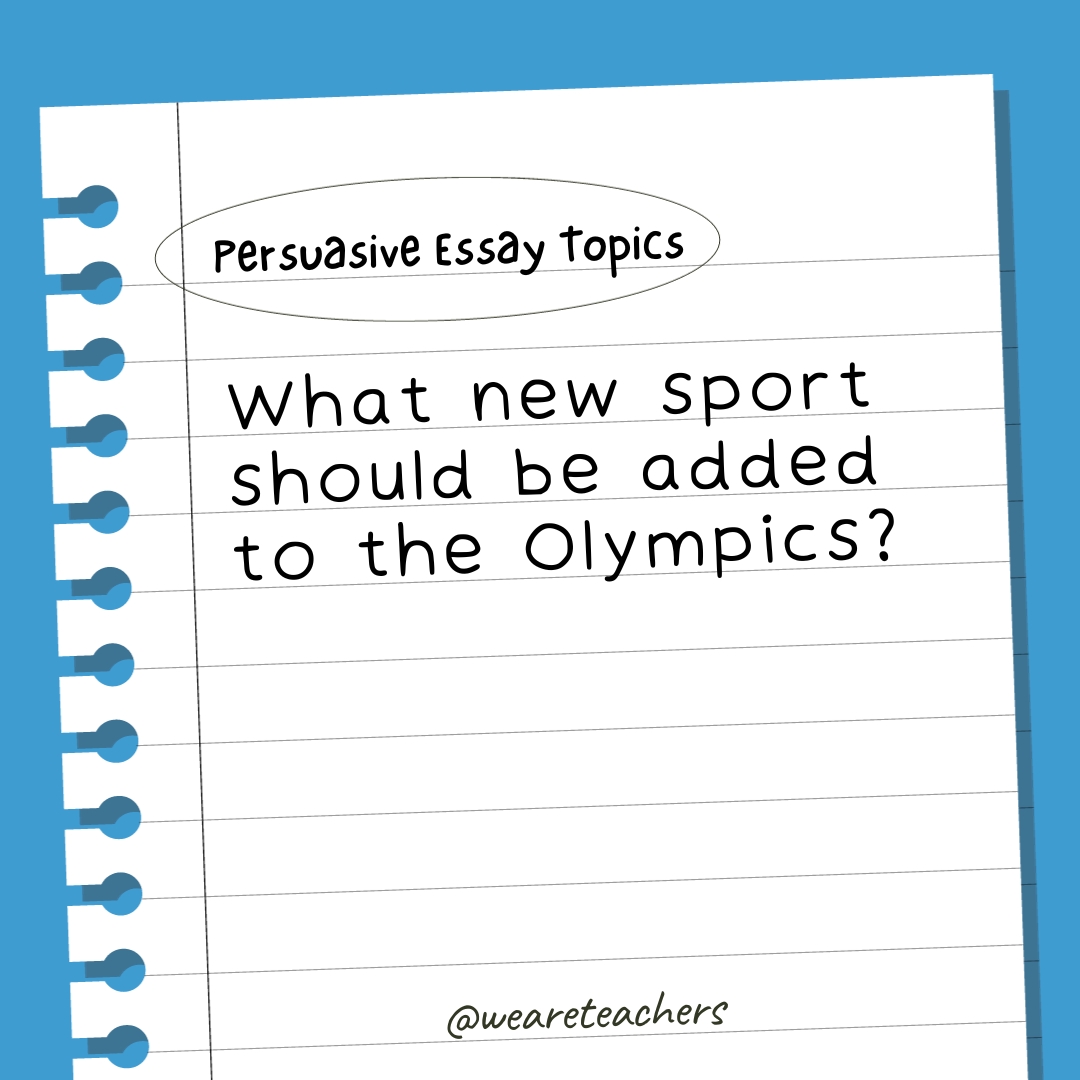
- What’s the best video game system?
- Does playing video games make you smarter?
- Does reality TV actually depict real life?
- Should all neighborhoods have free parks and playgrounds?
- What’s the best holiday?
- The very best food of all time is …
- Which is better, artificial Christmas trees or real ones?
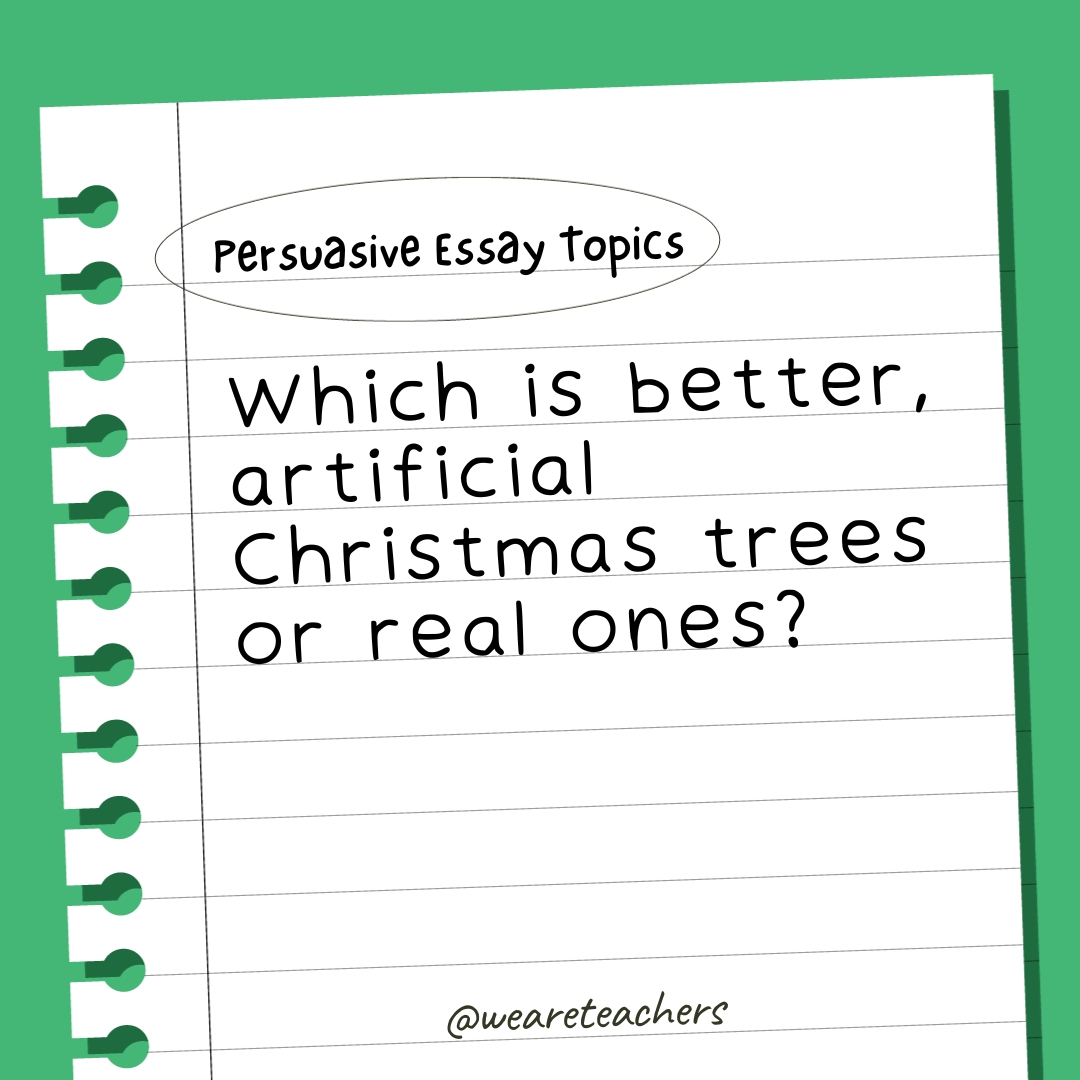
- What’s the best season of the year?
- Should you put ketchup on a hot dog?
- Is a taco a sandwich?
- Does fruit count as dessert?
- Should people have to go to school or work on their birthday?
- Are clowns scary or funny?
- Which is more dangerous, werewolves or vampires?
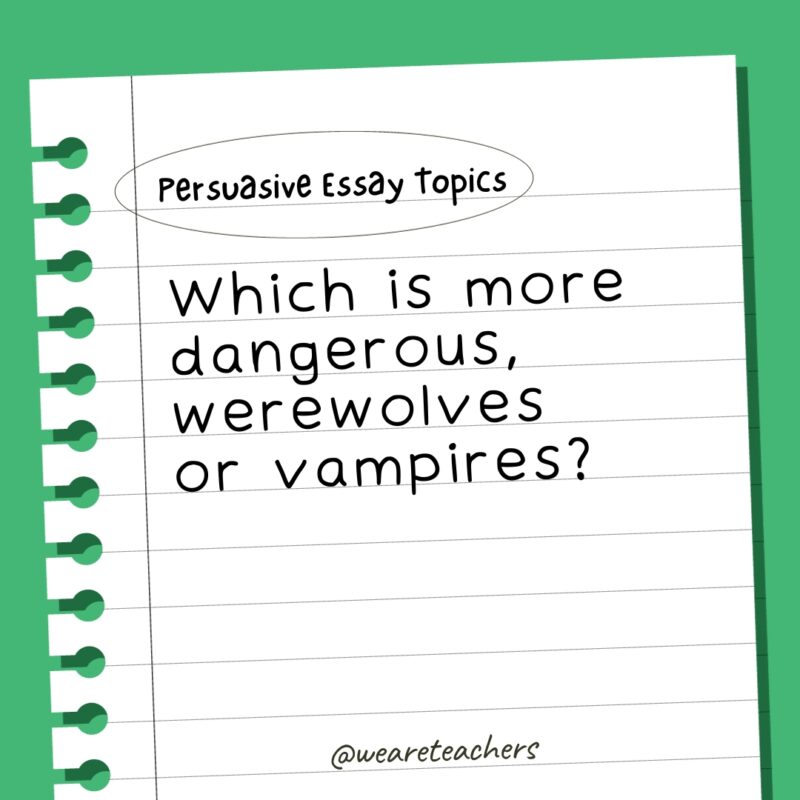
- The best pizza topping is …
- What would be the best superpower to have?
- Should everyone make their bed every day?
- Which came first, the chicken or the egg?
- Should you put pineapple on a pizza?
- Should you eat macaroni and cheese with a spoon or a fork?
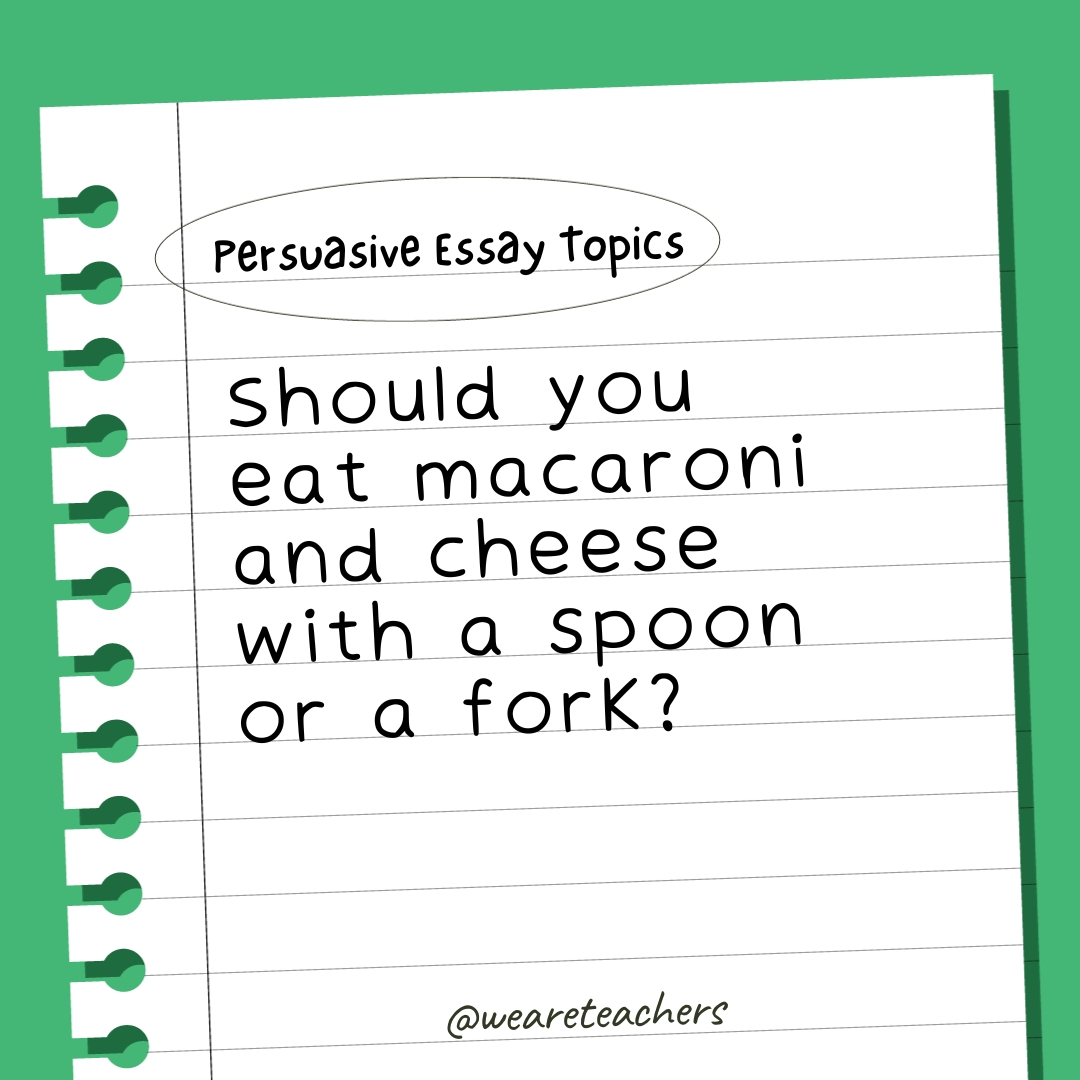
- Describe the world’s best ice cream sundae.
- Is Monday the worst day of the week?
- Would you rather travel back in time or forward in time?
- Is it better to be too hot or too cold?
- Are there aliens living among us here on Earth?
What are your favorite persuasive essay topics for students? Come exchange ideas in the We Are Teachers HELPLINE group on Facebook .
Plus, check out the big list of essay topics for high school (120+ ideas) ..
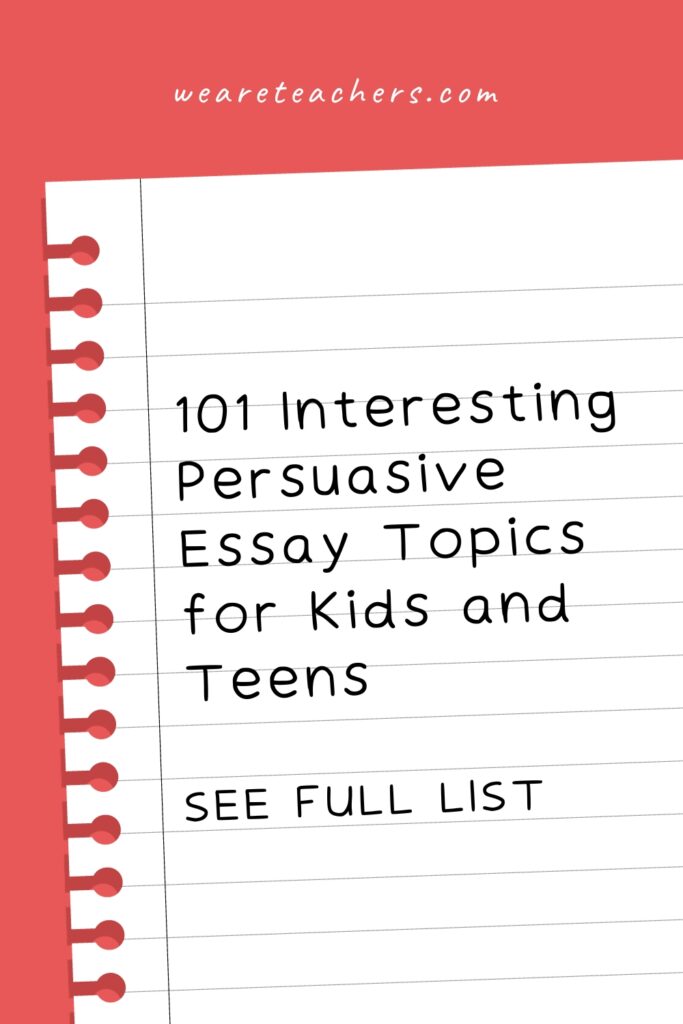
You Might Also Like

The Big List of Essay Topics for High School (120+ Ideas!)
Ideas to inspire every young writer! Continue Reading
Copyright © 2024. All rights reserved. 5335 Gate Parkway, Jacksonville, FL 32256

UASA (Ujian Akhir Sesi Akademik) English Year 6
Sumber / Guru: Easy English with Madam Nagiha Tahun / Tingkatan: Tahun 6 Subjek / Matapelajaran: Bahasa Inggeris
Hi assalamualaikum everyone! The last UASA set is finally done yeay! 🙌 As a teacher, my number 1 priority is the pupils’ success (kemenjadian murid). So, good luck to all the pupils. You can do this 💪
UASA YEAR 6
Full pdf version: https://t.me/EasyEnglishWithMadamNagiha/768
UASA YEAR 1 : https://t.me/EasyEnglishWithMadamNagiha/709
UASA YEAR 2 : https://t.me/EasyEnglishWithMadamNagiha/721
UASA YEAR 3 : https://t.me/EasyEnglishWithMadamNagiha/739
UASA YEAR 4 : https://t.me/EasyEnglishWithMadamNagiha/749
UASA YEAR 5 : https://t.me/EasyEnglishWithMadamNagiha/759
Facebook page: https://www.facebook.com/EasyEnglishwithMadamNagiha
Youtube channel: https://youtube.com/@EasyEnglishWithMadamNagiha
Please click on the image to start the slide manually or view full image:
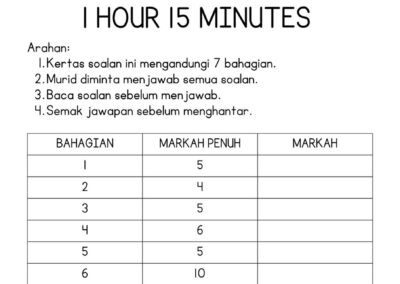
DOWNLOAD FILE PDF
Boleh download kompilasi imej dalam bentuk PDF di bawah ya:
This is the sharing discussion regarding the answers for today’s UASA questions.
Hope this video will help the pupils to revise and be ready for the upcoming UASA 💝
UASA YEAR 6 ANSWER DISCUSSION:
NOTIS PENTING
Pertanyaan mengenai bahan.
- Untuk sebarang pertanyaan mengenai bahan, sila rujuk kepada pemilik asal bahan. Sila ambil perhatian bahawa admin tidak mempunyai jawapan untuk soalan-soalan dari bahan pendidikan, kecuali yang tersedia dalam pos.
Bagaimana untuk muat turun imej dan fail?
- Sila klik kanan pada setiap imej untuk memuat turun atau muat turun fail PDF di bawah pos.
Terima Kasih
- Kami berharap perkongsian kami hari ini akan membantu perjalanan pendidikan anak anda. Sila kongsikan dan terima kasih kerana melawat kami di Cikgu Fadli Online.
IMPORTANT NOTICE
Questions regarding the material.
- For any questions regarding the material, please refer to the original owner of the material. Please note that the admin does not have answers for questions from educational materials, except those available in the post.
How to download images and files?
- Please right-click each image to download or download the PDF file below the post
- We hope that our sharing today will help your child’s educational journey. Kindly share, and thank you for visiting us at Cikgu Fadli Online.
MEMO BERKENAAN KOMEN
Laman blog ini dikunjungi bukan sahaja oleh ibu bapa, guru dan orang awam, malah juga oleh para murid dan pelajar. Komen yang kurang sopan, mengandungi kritikan, politik atau tidak sesuai tidak akan diluluskan. Sila gunakan nama dan alamat e-mel sebenar anda (nama samaran yang sopan masih boleh diterima.
This blog is visited not only by parents, teachers, and the general public but also by students and learners. Comments that are impolite, contain criticism, or politics, or are unsuitable will not be approved. Please use your real name and email address (polite pseudonyms are still acceptable).
I can do this
Admin: Great!
Admin: Thank you we appreciate your feedback
Submit a Comment Cancel reply
Your email address will not be published. Required fields are marked *
Save my name, email, and website in this browser for the next time I comment.
Submit Comment
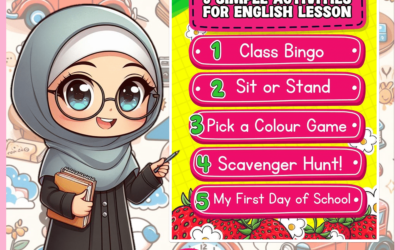
5 Simple Activities For English Lesson
Mar 24, 2024
Hello, young learners! Today, Madam Nagiha has some fun and easy activities to make your English lessons more exciting. Let’s dive in!1. Class Bingo This is a fun and interactive game that helps students learn more about each other. The teacher will provide a bingo...
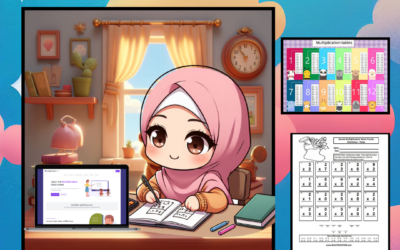
Hafal Sifir dan Main Game Matematik Percuma
Dec 29, 2023
🌎 Hai adik-adik! Hari ini, Admin Azlin ingin berkongsi bahan pembelajaran dan pendidikan (PdP) yang baru untuk adik-adik. Jom kita belajar sama-sama! 🚀 Hai anak-anak! Cuti sekolah ni, jom kita belajar dan hafal sifir. Sifir sangat penting tau! Kalau tak kuasai sifir,...
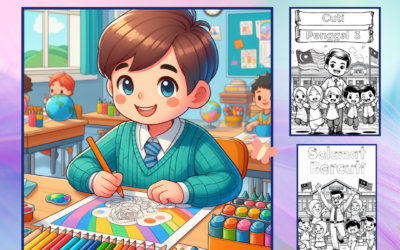
Mewarna Poster Cuti Sekolah
Dec 16, 2023
🌎 Hai adik-adik! Hari ini, Admin Azlin ingin berkongsi bahan pembelajaran dan pendidikan (PdP) yang baru untuk adik-adik. Jom kita belajar sama-sama! 🚀 Hai adik-adik ceria! Cuti sekolah telah tiba, jadi apa kata kita lakukan sesuatu yang seronok dan bermanfaat? Jom...
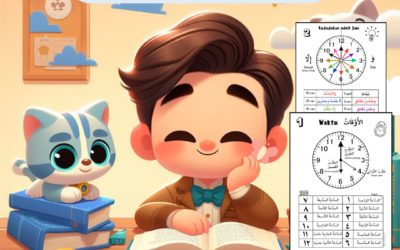
Nota Rujukan Pantas Subjek Bahasa Arab Tahun 4
Nov 30, 2023
🌎 Hai adik-adik! Hari ini, Admin Azlin ingin berkongsi bahan pembelajaran dan pendidikan (PdP) yang baru untuk adik-adik. Jom kita belajar sama-sama! 🚀 Oleh: Nisa’ Jauri (bondalutfi) Bismillah, Alhamdulillah. Bonda mula perkongsian nota rujukan pantas dengan subjek...
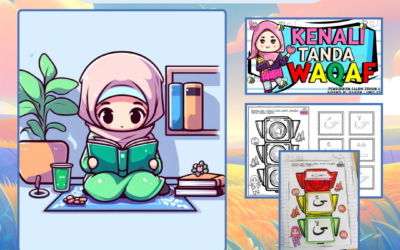
Kenali Tanda Waqaf – Pendidikan Islam Tahun 1
Nov 19, 2023
🌎 Hai adik-adik! Hari ini, Admin Azlin ingin berkongsi bahan pembelajaran dan pendidikan (PdP) yang baru untuk adik-adik. Jom kita belajar sama-sama! 🚀 Saya ingin berkongsi dengan anda tentang bahan pendidikan yang sangat menarik dan bermanfaat dari Koleksi BBMUF -...
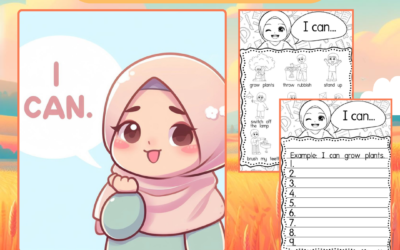
Boost Your Vocabulary: Learn Verbs with ‘I Can’ Statements
Nov 12, 2023
🌎 Hello little ones! Today, Admin Azlin wants to share new educational and learning materials (PdP) for you. Let's learn together! 🚀 Hello, young learners! Today, we have an exciting resource to share with you. Our friend, Madam Nagiha, has created a fantastic...
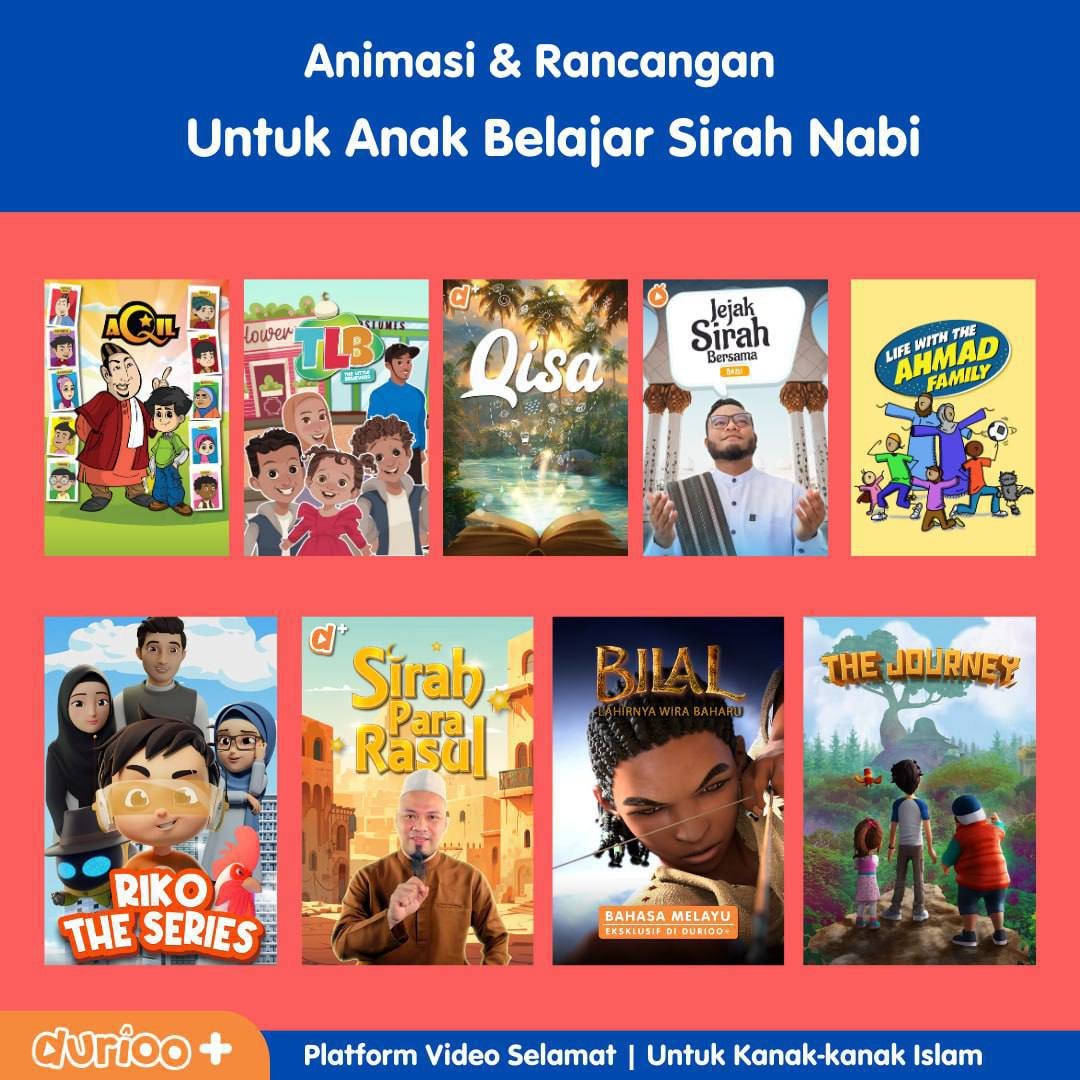
MENU PENDIDIKAN
- Tips, Isu dan Kisah Pendidikan
- Info Pendidikan Terkini
- Bincang & Disscuss
- Buku Teks Digital
- Bilik Sumber / Guru
Subjek / Mata Pelajaran
Tahun / tingkatan.
Toggle Sub menu di bawah untuk pilihan:
- Pemulihan Khas
- Pendidikan Khas
- Pra Sekolah
- Tingkatan 1
- Tingkatan 2
- Tingkatan 3
- Tingkatan 4
- Tingkatan 5
- Tingkatan 6
- Bahasa Arab
- Bahasa Inggeris
- Bahasa Melayu
- Pendidikan Agama Islam
- Pendidikan Jasmani dan Kesihatan
- Pendidikan Keselamatan Jalan Raya
- Pendidikan Muzik
- Pendidikan Seni Visual
JOM BERSEDEKAH

LANGGAN UPDATE TERKINI
Jom Subscribe untuk dapatkan Bahan PDP, Info dan Promosi Terkini!
Isi nama, email dan klik subscribe
Recent Post
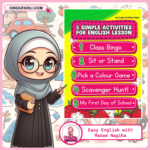
Recent Comments
Jump to navigation
- Inside Writing
- Teacher's Guides
Student Models
- Writing Topics
- Minilessons
- Shopping Cart
- Inside Grammar
- Grammar Adventures
- CCSS Correlations
- Infographics
Student Writing Models
How do I use student models in my classroom?

When you need an example written by a student, check out our vast collection of free student models. Scroll through the list, or search for a mode of writing such as “explanatory” or “persuasive.”
Jump to . . .
Explanatory writing.
- How Much I Know About Space Explanatory Paragraph
- My Favorite Pet Explanatory Paragraph
- Sweet Spring Explanatory Paragraph
Narrative Writing
- A Happy Day Narrative Paragraph
- My Trip to Mexico Narrative Paragraph
Creative Writing
- Happy Easter Story Paragraph
- Leaf Person Story
Research Writing
- Parrots Report
- If I Were President Explanatory Paragraph
- My Dad Personal Narrative
- The Horrible Day Personal Narrative
Response to Literature
- One Great Book Book Review
- A Fable Story
- Ant Poem Poem
- The Missing Coin Story
- Winter Words Poem
- Horses Report
- Ladybugs Report
- How to Make Boiled Eggs How-To
Persuasive Writing
- Plastic, Paper, or Cloth? Persuasive Paragraph
- The Funny Dance Personal Narrative
- The Sled Run Personal Narrative
- Hello, Spring! Poem
- Cheetahs Report
Business Writing
- Dear Ms. Nathan Email
- My Favorite Place to Go Description
- My Mother Personal Essay
- Rules Personal Essay
- Shadow Fort Description
- Adopting a Pet from the Pound Editorial
- Letter to the Editor Letter to the Editor
- Ann Personal Narrative
- Grandpa, Chaz, and Me Personal Narrative
- Indy’s Life Story Personal Narrative
- Jet Bikes Personal Narrative
- The Day I Took the Spotlight Personal Narrative
- A Story of Survival Book Review
- Chloe’s Day Story
- Did You Ever Look At . . . Poem
- Dreams Poem
- I Am Attean Poem
- Sloppy Joes Poem
- The Civil War Poem
- The Haunted House Story
- The Terror of Kansas Story
- When I Was Upside Down Poem
- Deer Don’t Need to Flee to Stay Trouble-Free! Report
- Height-Challenged German Shepherd Report
- Friendship Definition
- What Really Matters News Feature
- Cheating in America Problem-Solution
- Hang Up and Drive Editorial
- Musical Arts Editorial
- Summer: 15 Days or 2 1/2 Months? Editorial
- A Cowboy's Journal Fictionalized Journal Entry
- Giving Life Personal Narrative
- The Great Paw Paw Personal Narrative
- The Racist Warehouse Personal Narrative
- Limadastrin Poem
- The Best Little Girl in the World Book Review
- How the Stars Came to Be Story
- Linden’s Library Story
- My Backyard Poem
- The Call Poem
- I Am Latvia Research Report
- Mir Pushed the Frontier of Space Research Report
- The Aloha State Research Report
- The Incredible Egg Observation Report
- Unique Wolves Research Report
- Dear Dr. Larson Email
Personal Writing
- A Lesson to Learn Journal
- Caught in the Net Definition
- From Bed Bound to Breaking Boards News Feature
- If Only They Knew Comparison-Contrast
- Save the Elephants Cause-Effect
- Student Entrepreneur Reaches for Dreams of the Sky News Feature
- Internet Plagiarism Problem-Solution
- Mosquito Madness Pet Peeve
- Anticipating the Dream Personal Narrative
- Huddling Together Personal Narrative
- H’s Hickory Chips Personal Narrative
- It’s a Boy! Personal Narrative
- My Greatest Instrument Personal Narrative
- Snapshots Personal Narrative
- Take Me to Casablanca Personal Narrative
- The Boy with Chris Pine Blue Eyes Personal Narrative
- The Climb Personal Narrative
- The House on Medford Avenue Personal Narrative
- Adam’s Train of Ghosts Music Review
- Diary of Gaspard Fictionalized Journal Entry
- My Interpretation of The Joy Luck Club Literary Analysis
- Mama’s Stitches Poem
- The KHS Press Play
- Rosa Parks Research Report
- The Killer Bean Research Report
- Mid-Project Report on History Paper Email
- Vegetarian Lunch Options at Bay High Email
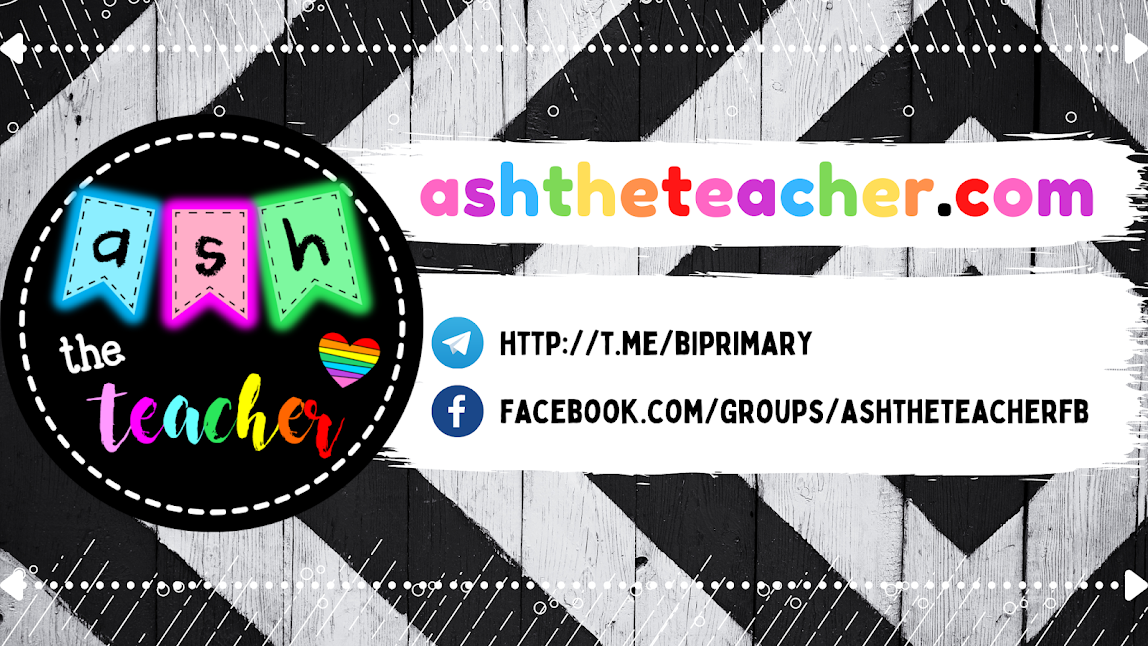
DISCLAIMER: All the lesson plans shared here are my sample lesson plan suggestions based on the materials that I've shared. You can definitely opt to modify or not use the materials. Everything here is shared for PERSONAL usage only Therefore, materials, lesson plans or modules from this blog cannot be sold by any means. For any inquiries, do contact me via [email protected]
- CIVIC LESSONS
Tuesday 15 March 2022
Year 6 l11 - l16 (u1).
👉 Join ASH THE TEACHER Telegram Group
2 comments:

Thank you very much Miss Ash. You are a very passionate teacher who strives the best for students.
Thank you so much, Miss Ash...

Choose Your Test
Sat / act prep online guides and tips, 177 college essay examples for 11 schools + expert analysis.
College Admissions , College Essays

The personal statement might just be the hardest part of your college application. Mostly this is because it has the least guidance and is the most open-ended. One way to understand what colleges are looking for when they ask you to write an essay is to check out the essays of students who already got in—college essays that actually worked. After all, they must be among the most successful of this weird literary genre.
In this article, I'll go through general guidelines for what makes great college essays great. I've also compiled an enormous list of 100+ actual sample college essays from 11 different schools. Finally, I'll break down two of these published college essay examples and explain why and how they work. With links to 177 full essays and essay excerpts , this article is a great resource for learning how to craft your own personal college admissions essay!
What Excellent College Essays Have in Common
Even though in many ways these sample college essays are very different from one other, they do share some traits you should try to emulate as you write your own essay.
Visible Signs of Planning
Building out from a narrow, concrete focus. You'll see a similar structure in many of the essays. The author starts with a very detailed story of an event or description of a person or place. After this sense-heavy imagery, the essay expands out to make a broader point about the author, and connects this very memorable experience to the author's present situation, state of mind, newfound understanding, or maturity level.
Knowing how to tell a story. Some of the experiences in these essays are one-of-a-kind. But most deal with the stuff of everyday life. What sets them apart is the way the author approaches the topic: analyzing it for drama and humor, for its moving qualities, for what it says about the author's world, and for how it connects to the author's emotional life.
Stellar Execution
A killer first sentence. You've heard it before, and you'll hear it again: you have to suck the reader in, and the best place to do that is the first sentence. Great first sentences are punchy. They are like cliffhangers, setting up an exciting scene or an unusual situation with an unclear conclusion, in order to make the reader want to know more. Don't take my word for it—check out these 22 first sentences from Stanford applicants and tell me you don't want to read the rest of those essays to find out what happens!
A lively, individual voice. Writing is for readers. In this case, your reader is an admissions officer who has read thousands of essays before yours and will read thousands after. Your goal? Don't bore your reader. Use interesting descriptions, stay away from clichés, include your own offbeat observations—anything that makes this essay sounds like you and not like anyone else.

Technical correctness. No spelling mistakes, no grammar weirdness, no syntax issues, no punctuation snafus—each of these sample college essays has been formatted and proofread perfectly. If this kind of exactness is not your strong suit, you're in luck! All colleges advise applicants to have their essays looked over several times by parents, teachers, mentors, and anyone else who can spot a comma splice. Your essay must be your own work, but there is absolutely nothing wrong with getting help polishing it.
And if you need more guidance, connect with PrepScholar's expert admissions consultants . These expert writers know exactly what college admissions committees look for in an admissions essay and chan help you craft an essay that boosts your chances of getting into your dream school.
Check out PrepScholar's Essay Editing and Coaching progra m for more details!

Links to Full College Essay Examples
Some colleges publish a selection of their favorite accepted college essays that worked, and I've put together a selection of over 100 of these.
Common App Essay Samples
Please note that some of these college essay examples may be responding to prompts that are no longer in use. The current Common App prompts are as follows:
1. Some students have a background, identity, interest, or talent that is so meaningful they believe their application would be incomplete without it. If this sounds like you, then please share your story. 2. The lessons we take from obstacles we encounter can be fundamental to later success. Recount a time when you faced a challenge, setback, or failure. How did it affect you, and what did you learn from the experience? 3. Reflect on a time when you questioned or challenged a belief or idea. What prompted your thinking? What was the outcome? 4. Reflect on something that someone has done for you that has made you happy or thankful in a surprising way. How has this gratitude affected or motivated you? 5. Discuss an accomplishment, event, or realization that sparked a period of personal growth and a new understanding of yourself or others. 6. Describe a topic, idea, or concept you find so engaging that it makes you lose all track of time. Why does it captivate you? What or who do you turn to when you want to learn more?
7. Share an essay on any topic of your choice. It can be one you've already written, one that responds to a different prompt, or one of your own design.
Now, let's get to the good stuff: the list of 177 college essay examples responding to current and past Common App essay prompts.
Connecticut college.
- 12 Common Application essays from the classes of 2022-2025
Hamilton College
- 7 Common Application essays from the class of 2026
- 7 Common Application essays from the class of 2022
- 7 Common Application essays from the class of 2018
- 8 Common Application essays from the class of 2012
- 8 Common Application essays from the class of 2007
Johns Hopkins
These essays are answers to past prompts from either the Common Application or the Coalition Application (which Johns Hopkins used to accept).
- 1 Common Application or Coalition Application essay from the class of 2026
- 6 Common Application or Coalition Application essays from the class of 2025
- 6 Common Application or Universal Application essays from the class of 2024
- 6 Common Application or Universal Application essays from the class of 2023
- 7 Common Application of Universal Application essays from the class of 2022
- 5 Common Application or Universal Application essays from the class of 2021
- 7 Common Application or Universal Application essays from the class of 2020
Essay Examples Published by Other Websites
- 2 Common Application essays ( 1st essay , 2nd essay ) from applicants admitted to Columbia
Other Sample College Essays
Here is a collection of essays that are college-specific.
Babson College
- 4 essays (and 1 video response) on "Why Babson" from the class of 2020
Emory University
- 5 essay examples ( 1 , 2 , 3 , 4 , 5 ) from the class of 2020 along with analysis from Emory admissions staff on why the essays were exceptional
- 5 more recent essay examples ( 1 , 2 , 3 , 4 , 5 ) along with analysis from Emory admissions staff on what made these essays stand out
University of Georgia
- 1 “strong essay” sample from 2019
- 1 “strong essay” sample from 2018
- 10 Harvard essays from 2023
- 10 Harvard essays from 2022
- 10 Harvard essays from 2021
- 10 Harvard essays from 2020
- 10 Harvard essays from 2019
- 10 Harvard essays from 2018
- 6 essays from admitted MIT students
Smith College
- 6 "best gift" essays from the class of 2018

Books of College Essays
If you're looking for even more sample college essays, consider purchasing a college essay book. The best of these include dozens of essays that worked and feedback from real admissions officers.
College Essays That Made a Difference —This detailed guide from Princeton Review includes not only successful essays, but also interviews with admissions officers and full student profiles.
50 Successful Harvard Application Essays by the Staff of the Harvard Crimson—A must for anyone aspiring to Harvard .
50 Successful Ivy League Application Essays and 50 Successful Stanford Application Essays by Gen and Kelly Tanabe—For essays from other top schools, check out this venerated series, which is regularly updated with new essays.
Heavenly Essays by Janine W. Robinson—This collection from the popular blogger behind Essay Hell includes a wider range of schools, as well as helpful tips on honing your own essay.

Analyzing Great Common App Essays That Worked
I've picked two essays from the examples collected above to examine in more depth so that you can see exactly what makes a successful college essay work. Full credit for these essays goes to the original authors and the schools that published them.
Example 1: "Breaking Into Cars," by Stephen, Johns Hopkins Class of '19 (Common App Essay, 636 words long)
I had never broken into a car before.
We were in Laredo, having just finished our first day at a Habitat for Humanity work site. The Hotchkiss volunteers had already left, off to enjoy some Texas BBQ, leaving me behind with the college kids to clean up. Not until we were stranded did we realize we were locked out of the van.
Someone picked a coat hanger out of the dumpster, handed it to me, and took a few steps back.
"Can you do that thing with a coat hanger to unlock it?"
"Why me?" I thought.
More out of amusement than optimism, I gave it a try. I slid the hanger into the window's seal like I'd seen on crime shows, and spent a few minutes jiggling the apparatus around the inside of the frame. Suddenly, two things simultaneously clicked. One was the lock on the door. (I actually succeeded in springing it.) The other was the realization that I'd been in this type of situation before. In fact, I'd been born into this type of situation.
My upbringing has numbed me to unpredictability and chaos. With a family of seven, my home was loud, messy, and spottily supervised. My siblings arguing, the dog barking, the phone ringing—all meant my house was functioning normally. My Dad, a retired Navy pilot, was away half the time. When he was home, he had a parenting style something like a drill sergeant. At the age of nine, I learned how to clear burning oil from the surface of water. My Dad considered this a critical life skill—you know, in case my aircraft carrier should ever get torpedoed. "The water's on fire! Clear a hole!" he shouted, tossing me in the lake without warning. While I'm still unconvinced about that particular lesson's practicality, my Dad's overarching message is unequivocally true: much of life is unexpected, and you have to deal with the twists and turns.
Living in my family, days rarely unfolded as planned. A bit overlooked, a little pushed around, I learned to roll with reality, negotiate a quick deal, and give the improbable a try. I don't sweat the small stuff, and I definitely don't expect perfect fairness. So what if our dining room table only has six chairs for seven people? Someone learns the importance of punctuality every night.
But more than punctuality and a special affinity for musical chairs, my family life has taught me to thrive in situations over which I have no power. Growing up, I never controlled my older siblings, but I learned how to thwart their attempts to control me. I forged alliances, and realigned them as necessary. Sometimes, I was the poor, defenseless little brother; sometimes I was the omniscient elder. Different things to different people, as the situation demanded. I learned to adapt.
Back then, these techniques were merely reactions undertaken to ensure my survival. But one day this fall, Dr. Hicks, our Head of School, asked me a question that he hoped all seniors would reflect on throughout the year: "How can I participate in a thing I do not govern, in the company of people I did not choose?"
The question caught me off guard, much like the question posed to me in Laredo. Then, I realized I knew the answer. I knew why the coat hanger had been handed to me.
Growing up as the middle child in my family, I was a vital participant in a thing I did not govern, in the company of people I did not choose. It's family. It's society. And often, it's chaos. You participate by letting go of the small stuff, not expecting order and perfection, and facing the unexpected with confidence, optimism, and preparedness. My family experience taught me to face a serendipitous world with confidence.
What Makes This Essay Tick?
It's very helpful to take writing apart in order to see just how it accomplishes its objectives. Stephen's essay is very effective. Let's find out why!
An Opening Line That Draws You In
In just eight words, we get: scene-setting (he is standing next to a car about to break in), the idea of crossing a boundary (he is maybe about to do an illegal thing for the first time), and a cliffhanger (we are thinking: is he going to get caught? Is he headed for a life of crime? Is he about to be scared straight?).
Great, Detailed Opening Story
More out of amusement than optimism, I gave it a try. I slid the hanger into the window's seal like I'd seen on crime shows, and spent a few minutes jiggling the apparatus around the inside of the frame.
It's the details that really make this small experience come alive. Notice how whenever he can, Stephen uses a more specific, descriptive word in place of a more generic one. The volunteers aren't going to get food or dinner; they're going for "Texas BBQ." The coat hanger comes from "a dumpster." Stephen doesn't just move the coat hanger—he "jiggles" it.
Details also help us visualize the emotions of the people in the scene. The person who hands Stephen the coat hanger isn't just uncomfortable or nervous; he "takes a few steps back"—a description of movement that conveys feelings. Finally, the detail of actual speech makes the scene pop. Instead of writing that the other guy asked him to unlock the van, Stephen has the guy actually say his own words in a way that sounds like a teenager talking.

Turning a Specific Incident Into a Deeper Insight
Suddenly, two things simultaneously clicked. One was the lock on the door. (I actually succeeded in springing it.) The other was the realization that I'd been in this type of situation before. In fact, I'd been born into this type of situation.
Stephen makes the locked car experience a meaningful illustration of how he has learned to be resourceful and ready for anything, and he also makes this turn from the specific to the broad through an elegant play on the two meanings of the word "click."
Using Concrete Examples When Making Abstract Claims
My upbringing has numbed me to unpredictability and chaos. With a family of seven, my home was loud, messy, and spottily supervised. My siblings arguing, the dog barking, the phone ringing—all meant my house was functioning normally.
"Unpredictability and chaos" are very abstract, not easily visualized concepts. They could also mean any number of things—violence, abandonment, poverty, mental instability. By instantly following up with highly finite and unambiguous illustrations like "family of seven" and "siblings arguing, the dog barking, the phone ringing," Stephen grounds the abstraction in something that is easy to picture: a large, noisy family.
Using Small Bits of Humor and Casual Word Choice
My Dad, a retired Navy pilot, was away half the time. When he was home, he had a parenting style something like a drill sergeant. At the age of nine, I learned how to clear burning oil from the surface of water. My Dad considered this a critical life skill—you know, in case my aircraft carrier should ever get torpedoed.
Obviously, knowing how to clean burning oil is not high on the list of things every 9-year-old needs to know. To emphasize this, Stephen uses sarcasm by bringing up a situation that is clearly over-the-top: "in case my aircraft carrier should ever get torpedoed."
The humor also feels relaxed. Part of this is because he introduces it with the colloquial phrase "you know," so it sounds like he is talking to us in person. This approach also diffuses the potential discomfort of the reader with his father's strictness—since he is making jokes about it, clearly he is OK. Notice, though, that this doesn't occur very much in the essay. This helps keep the tone meaningful and serious rather than flippant.

An Ending That Stretches the Insight Into the Future
But one day this fall, Dr. Hicks, our Head of School, asked me a question that he hoped all seniors would reflect on throughout the year: "How can I participate in a thing I do not govern, in the company of people I did not choose?"
The ending of the essay reveals that Stephen's life has been one long preparation for the future. He has emerged from chaos and his dad's approach to parenting as a person who can thrive in a world that he can't control.
This connection of past experience to current maturity and self-knowledge is a key element in all successful personal essays. Colleges are very much looking for mature, self-aware applicants. These are the qualities of successful college students, who will be able to navigate the independence college classes require and the responsibility and quasi-adulthood of college life.
What Could This Essay Do Even Better?
Even the best essays aren't perfect, and even the world's greatest writers will tell you that writing is never "finished"—just "due." So what would we tweak in this essay if we could?
Replace some of the clichéd language. Stephen uses handy phrases like "twists and turns" and "don't sweat the small stuff" as a kind of shorthand for explaining his relationship to chaos and unpredictability. But using too many of these ready-made expressions runs the risk of clouding out your own voice and replacing it with something expected and boring.
Use another example from recent life. Stephen's first example (breaking into the van in Laredo) is a great illustration of being resourceful in an unexpected situation. But his essay also emphasizes that he "learned to adapt" by being "different things to different people." It would be great to see how this plays out outside his family, either in the situation in Laredo or another context.

Example 2: By Renner Kwittken, Tufts Class of '23 (Common App Essay, 645 words long)
My first dream job was to be a pickle truck driver. I saw it in my favorite book, Richard Scarry's "Cars and Trucks and Things That Go," and for some reason, I was absolutely obsessed with the idea of driving a giant pickle. Much to the discontent of my younger sister, I insisted that my parents read us that book as many nights as possible so we could find goldbug, a small little golden bug, on every page. I would imagine the wonderful life I would have: being a pig driving a giant pickle truck across the country, chasing and finding goldbug. I then moved on to wanting to be a Lego Master. Then an architect. Then a surgeon.
Then I discovered a real goldbug: gold nanoparticles that can reprogram macrophages to assist in killing tumors, produce clear images of them without sacrificing the subject, and heat them to obliteration.
Suddenly the destination of my pickle was clear.
I quickly became enveloped by the world of nanomedicine; I scoured articles about liposomes, polymeric micelles, dendrimers, targeting ligands, and self-assembling nanoparticles, all conquering cancer in some exotic way. Completely absorbed, I set out to find a mentor to dive even deeper into these topics. After several rejections, I was immensely grateful to receive an invitation to work alongside Dr. Sangeeta Ray at Johns Hopkins.
In the lab, Dr. Ray encouraged a great amount of autonomy to design and implement my own procedures. I chose to attack a problem that affects the entire field of nanomedicine: nanoparticles consistently fail to translate from animal studies into clinical trials. Jumping off recent literature, I set out to see if a pre-dose of a common chemotherapeutic could enhance nanoparticle delivery in aggressive prostate cancer, creating three novel constructs based on three different linear polymers, each using fluorescent dye (although no gold, sorry goldbug!). Though using radioactive isotopes like Gallium and Yttrium would have been incredible, as a 17-year-old, I unfortunately wasn't allowed in the same room as these radioactive materials (even though I took a Geiger counter to a pair of shoes and found them to be slightly dangerous).
I hadn't expected my hypothesis to work, as the research project would have ideally been led across two full years. Yet while there are still many optimizations and revisions to be done, I was thrilled to find -- with completely new nanoparticles that may one day mean future trials will use particles with the initials "RK-1" -- thatcyclophosphamide did indeed increase nanoparticle delivery to the tumor in a statistically significant way.
A secondary, unexpected research project was living alone in Baltimore, a new city to me, surrounded by people much older than I. Even with moving frequently between hotels, AirBnB's, and students' apartments, I strangely reveled in the freedom I had to enjoy my surroundings and form new friendships with graduate school students from the lab. We explored The Inner Harbor at night, attended a concert together one weekend, and even got to watch the Orioles lose (to nobody's surprise). Ironically, it's through these new friendships I discovered something unexpected: what I truly love is sharing research. Whether in a presentation or in a casual conversation, making others interested in science is perhaps more exciting to me than the research itself. This solidified a new pursuit to angle my love for writing towards illuminating science in ways people can understand, adding value to a society that can certainly benefit from more scientific literacy.
It seems fitting that my goals are still transforming: in Scarry's book, there is not just one goldbug, there is one on every page. With each new experience, I'm learning that it isn't the goldbug itself, but rather the act of searching for the goldbugs that will encourage, shape, and refine my ever-evolving passions. Regardless of the goldbug I seek -- I know my pickle truck has just begun its journey.
Renner takes a somewhat different approach than Stephen, but their essay is just as detailed and engaging. Let's go through some of the strengths of this essay.
One Clear Governing Metaphor
This essay is ultimately about two things: Renner’s dreams and future career goals, and Renner’s philosophy on goal-setting and achieving one’s dreams.
But instead of listing off all the amazing things they’ve done to pursue their dream of working in nanomedicine, Renner tells a powerful, unique story instead. To set up the narrative, Renner opens the essay by connecting their experiences with goal-setting and dream-chasing all the way back to a memorable childhood experience:
This lighthearted–but relevant!--story about the moment when Renner first developed a passion for a specific career (“finding the goldbug”) provides an anchor point for the rest of the essay. As Renner pivots to describing their current dreams and goals–working in nanomedicine–the metaphor of “finding the goldbug” is reflected in Renner’s experiments, rejections, and new discoveries.
Though Renner tells multiple stories about their quest to “find the goldbug,” or, in other words, pursue their passion, each story is connected by a unifying theme; namely, that as we search and grow over time, our goals will transform…and that’s okay! By the end of the essay, Renner uses the metaphor of “finding the goldbug” to reiterate the relevance of the opening story:
While the earlier parts of the essay convey Renner’s core message by showing, the final, concluding paragraph sums up Renner’s insights by telling. By briefly and clearly stating the relevance of the goldbug metaphor to their own philosophy on goals and dreams, Renner demonstrates their creativity, insight, and eagerness to grow and evolve as the journey continues into college.

An Engaging, Individual Voice
This essay uses many techniques that make Renner sound genuine and make the reader feel like we already know them.
Technique #1: humor. Notice Renner's gentle and relaxed humor that lightly mocks their younger self's grand ambitions (this is different from the more sarcastic kind of humor used by Stephen in the first essay—you could never mistake one writer for the other).
My first dream job was to be a pickle truck driver.
I would imagine the wonderful life I would have: being a pig driving a giant pickle truck across the country, chasing and finding goldbug. I then moved on to wanting to be a Lego Master. Then an architect. Then a surgeon.
Renner gives a great example of how to use humor to your advantage in college essays. You don’t want to come off as too self-deprecating or sarcastic, but telling a lightheartedly humorous story about your younger self that also showcases how you’ve grown and changed over time can set the right tone for your entire essay.
Technique #2: intentional, eye-catching structure. The second technique is the way Renner uses a unique structure to bolster the tone and themes of their essay . The structure of your essay can have a major impact on how your ideas come across…so it’s important to give it just as much thought as the content of your essay!
For instance, Renner does a great job of using one-line paragraphs to create dramatic emphasis and to make clear transitions from one phase of the story to the next:
Suddenly the destination of my pickle car was clear.
Not only does the one-liner above signal that Renner is moving into a new phase of the narrative (their nanoparticle research experiences), it also tells the reader that this is a big moment in Renner’s story. It’s clear that Renner made a major discovery that changed the course of their goal pursuit and dream-chasing. Through structure, Renner conveys excitement and entices the reader to keep pushing forward to the next part of the story.
Technique #3: playing with syntax. The third technique is to use sentences of varying length, syntax, and structure. Most of the essay's written in standard English and uses grammatically correct sentences. However, at key moments, Renner emphasizes that the reader needs to sit up and pay attention by switching to short, colloquial, differently punctuated, and sometimes fragmented sentences.
Even with moving frequently between hotels, AirBnB's, and students' apartments, I strangely reveled in the freedom I had to enjoy my surroundings and form new friendships with graduate school students from the lab. We explored The Inner Harbor at night, attended a concert together one weekend, and even got to watch the Orioles lose (to nobody's surprise). Ironically, it's through these new friendships I discovered something unexpected: what I truly love is sharing research.
In the examples above, Renner switches adeptly between long, flowing sentences and quippy, telegraphic ones. At the same time, Renner uses these different sentence lengths intentionally. As they describe their experiences in new places, they use longer sentences to immerse the reader in the sights, smells, and sounds of those experiences. And when it’s time to get a big, key idea across, Renner switches to a short, punchy sentence to stop the reader in their tracks.
The varying syntax and sentence lengths pull the reader into the narrative and set up crucial “aha” moments when it’s most important…which is a surefire way to make any college essay stand out.

Renner's essay is very strong, but there are still a few little things that could be improved.
Connecting the research experiences to the theme of “finding the goldbug.” The essay begins and ends with Renner’s connection to the idea of “finding the goldbug.” And while this metaphor is deftly tied into the essay’s intro and conclusion, it isn’t entirely clear what Renner’s big findings were during the research experiences that are described in the middle of the essay. It would be great to add a sentence or two stating what Renner’s big takeaways (or “goldbugs”) were from these experiences, which add more cohesion to the essay as a whole.
Give more details about discovering the world of nanomedicine. It makes sense that Renner wants to get into the details of their big research experiences as quickly as possible. After all, these are the details that show Renner’s dedication to nanomedicine! But a smoother transition from the opening pickle car/goldbug story to Renner’s “real goldbug” of nanoparticles would help the reader understand why nanoparticles became Renner’s goldbug. Finding out why Renner is so motivated to study nanomedicine–and perhaps what put them on to this field of study–would help readers fully understand why Renner chose this path in the first place.
4 Essential Tips for Writing Your Own Essay
How can you use this discussion to better your own college essay? Here are some suggestions for ways to use this resource effectively.
#1: Get Help From the Experts
Getting your college applications together takes a lot of work and can be pretty intimidatin g. Essays are even more important than ever now that admissions processes are changing and schools are going test-optional and removing diversity standards thanks to new Supreme Court rulings . If you want certified expert help that really makes a difference, get started with PrepScholar’s Essay Editing and Coaching program. Our program can help you put together an incredible essay from idea to completion so that your application stands out from the crowd. We've helped students get into the best colleges in the United States, including Harvard, Stanford, and Yale. If you're ready to take the next step and boost your odds of getting into your dream school, connect with our experts today .
#2: Read Other Essays to Get Ideas for Your Own
As you go through the essays we've compiled for you above, ask yourself the following questions:
- Can you explain to yourself (or someone else!) why the opening sentence works well?
- Look for the essay's detailed personal anecdote. What senses is the author describing? Can you easily picture the scene in your mind's eye?
- Find the place where this anecdote bridges into a larger insight about the author. How does the essay connect the two? How does the anecdote work as an example of the author's characteristic, trait, or skill?
- Check out the essay's tone. If it's funny, can you find the places where the humor comes from? If it's sad and moving, can you find the imagery and description of feelings that make you moved? If it's serious, can you see how word choice adds to this tone?
Make a note whenever you find an essay or part of an essay that you think was particularly well-written, and think about what you like about it . Is it funny? Does it help you really get to know the writer? Does it show what makes the writer unique? Once you have your list, keep it next to you while writing your essay to remind yourself to try and use those same techniques in your own essay.

#3: Find Your "A-Ha!" Moment
All of these essays rely on connecting with the reader through a heartfelt, highly descriptive scene from the author's life. It can either be very dramatic (did you survive a plane crash?) or it can be completely mundane (did you finally beat your dad at Scrabble?). Either way, it should be personal and revealing about you, your personality, and the way you are now that you are entering the adult world.
Check out essays by authors like John Jeremiah Sullivan , Leslie Jamison , Hanif Abdurraqib , and Esmé Weijun Wang to get more examples of how to craft a compelling personal narrative.
#4: Start Early, Revise Often
Let me level with you: the best writing isn't writing at all. It's rewriting. And in order to have time to rewrite, you have to start way before the application deadline. My advice is to write your first draft at least two months before your applications are due.
Let it sit for a few days untouched. Then come back to it with fresh eyes and think critically about what you've written. What's extra? What's missing? What is in the wrong place? What doesn't make sense? Don't be afraid to take it apart and rearrange sections. Do this several times over, and your essay will be much better for it!
For more editing tips, check out a style guide like Dreyer's English or Eats, Shoots & Leaves .

What's Next?
Still not sure which colleges you want to apply to? Our experts will show you how to make a college list that will help you choose a college that's right for you.
Interested in learning more about college essays? Check out our detailed breakdown of exactly how personal statements work in an application , some suggestions on what to avoid when writing your essay , and our guide to writing about your extracurricular activities .
Working on the rest of your application? Read what admissions officers wish applicants knew before applying .

The recommendations in this post are based solely on our knowledge and experience. If you purchase an item through one of our links PrepScholar may receive a commission.

Anna scored in the 99th percentile on her SATs in high school, and went on to major in English at Princeton and to get her doctorate in English Literature at Columbia. She is passionate about improving student access to higher education.
Ask a Question Below
Have any questions about this article or other topics? Ask below and we'll reply!
Improve With Our Famous Guides
- For All Students
The 5 Strategies You Must Be Using to Improve 160+ SAT Points
How to Get a Perfect 1600, by a Perfect Scorer
Series: How to Get 800 on Each SAT Section:
Score 800 on SAT Math
Score 800 on SAT Reading
Score 800 on SAT Writing
Series: How to Get to 600 on Each SAT Section:
Score 600 on SAT Math
Score 600 on SAT Reading
Score 600 on SAT Writing
Free Complete Official SAT Practice Tests
What SAT Target Score Should You Be Aiming For?
15 Strategies to Improve Your SAT Essay
The 5 Strategies You Must Be Using to Improve 4+ ACT Points
How to Get a Perfect 36 ACT, by a Perfect Scorer
Series: How to Get 36 on Each ACT Section:
36 on ACT English
36 on ACT Math
36 on ACT Reading
36 on ACT Science
Series: How to Get to 24 on Each ACT Section:
24 on ACT English
24 on ACT Math
24 on ACT Reading
24 on ACT Science
What ACT target score should you be aiming for?
ACT Vocabulary You Must Know
ACT Writing: 15 Tips to Raise Your Essay Score
How to Get Into Harvard and the Ivy League
How to Get a Perfect 4.0 GPA
How to Write an Amazing College Essay
What Exactly Are Colleges Looking For?
Is the ACT easier than the SAT? A Comprehensive Guide
Should you retake your SAT or ACT?
When should you take the SAT or ACT?
Stay Informed
Get the latest articles and test prep tips!
Looking for Graduate School Test Prep?
Check out our top-rated graduate blogs here:
GRE Online Prep Blog
GMAT Online Prep Blog
TOEFL Online Prep Blog
Holly R. "I am absolutely overjoyed and cannot thank you enough for helping me!”

IMAGES
VIDEO
COMMENTS
They really need a structure for this. So, the typical essay, before they get to me, goes like this, and it is a good precursor: Introduction that states your thesis and 3 major reasons to support your claim. Reason 1. Reason 2. Reason 3. Conclusion that looks a whole lot like the introduction.
Narrative Writing. Grade 6 Sample. Splash! Feedback for Improvement. What worked: There is a sense of story with a beginning, middle and end. The word choice is often high level - slammed, sprinted, flopped, tranquil, glistened. Entertaining Beginning: There was a mix of sound, action and thought - the author established the setting - the pond ...
Narrative Essay Topic Ideas for Students. Argumentative Essay Topics for Middle School. Expository Essay Topic Ideas. Story Writing Topics for Grades 5 - 9. Essay writing curriculum 6th grade. These 37 essay topics for 6th graders will help your kids form opinions, explore their ideas on paper, and express their thoughts confidently.
50 Contoh Karangan Bahasa Inggeris Sekolah Rendah. . Modul Bahasa Inggeris Tahun 4, 5, 6 (English Module Paper 2) + Answer. Year 4, 5, 6 Writing Module (Sentence Construction) (Penulisan) . Bahasa Inggeris Penulisan Tahun 4, 5, 6 Bahagian B: Soalan 2 + Jawapan.
Essay on Importance of Computer for Class 6. My Family Essay for Class 6. Essay on Most Memorable Day of My Life for Class 6. Essay on Punctuality for Class 6. Essay on Global Warming for Class 6. Essay on Importance of Reading for Class 6. Essay on Child Labour for Class 6. Unity in Diversity Essay for Class 6.
Examples Of Essay Writing Topics For Class 6: 1. My Favorite Season: My favorite season is winter. I love the cold weather, and I get excited when the first snowfall arrives. I enjoy making snowmen and having snowball fights with my friends. I also love the holidays that come during winter, such as Christmas and New Year's.
Persuasive Writing Prompts For The 6th Grade Student. 1. Is a dress code ever necessary? In this prompt, students will be asked to take a stance on whether or not they think there is ever a time to enforce a dress code. Are there times when someone should be told how to dress? Such as a school dress code or wedding?
Here, we are providing 6th Grade Essays in English for children to make habitual with different categories of essays. List of 6th Standard English Essays for Students. APlusTopper provided Essay Topics for Class 6 students is very beneficial to win first prizes in the essay writing competitions and good scores in exams.
What your child will learn. In Year 6 (age 10-11), your child will be aiming to build upon the goals and expectations they were first set in Year 5. They will be expected to: Plan their writing by: Identifying the audience for and purpose of the writing. Noting and developing initial ideas, drawing on reading and research where necessary.
Example of a Great Essay | Explanations, Tips & Tricks. Published on February 9, 2015 by Shane Bryson . Revised on July 23, 2023 by Shona McCombes. This example guides you through the structure of an essay. It shows how to build an effective introduction, focused paragraphs, clear transitions between ideas, and a strong conclusion.
Sample lines: "Obviously, Harry Potter and the Sorcerer's Stone should make any modern 11-year-old a very happy reader. The novel moves quickly, packs in everything from a boa constrictor that winks to a melancholy Zen-spouting centaur to an owl postal system, and ends with a scary surprise.
101 Interesting Persuasive Essay Topics for Kids and Teens. Use your words to sway the reader. Persuasive writing is one of those skills that can help students succeed in real life. Persuasive essays are similar to argumentative, but they rely less on facts and more on emotion to sway the reader.
UASA (Ujian Akhir Sesi Akademik) English Year 6. Sumber: Easy English with Madam Nagiha Tahun / Tingkatan: Tahun 6 Subjek: Bahasa Inggeris
Student Models. When you need an example written by a student, check out our vast collection of free student models. Scroll through the list, or search for a mode of writing such as "explanatory" or "persuasive.".
nglish Year 6 Satisfactory Work sample 1 2014 dition Page 2 of 20 Persuasive text: Too much money is spent on toys and games Year 6 English achievement standard The parts of the achievement standard targeted in the assessment task are highlighted. Receptive modes (listening, reading and viewing)
UASA English Year 6 - Free download as PDF File (.pdf) or read online for free.
Y6 L129 - L133 (U9) Y6 L134 - L138 (U9) Y6 L139 - L144 (U9) U10: It's a mystery. Y6 L145 - L149 (U10) Y6 L150 - L154 (U10) Based on the SOW, lessons 155-160 can be projects, quizzes and. other creative lessons by the teacher. YEAR 6 CIVIC LESSONS.
Essay 1: Sharing an identity or background through a montage. Essay 2: Overcoming a challenge, a sports injury narrative. Essay 3: Showing the influence of an important person or thing. Other interesting articles. Frequently asked questions about college application essays.
year 6 l11 - l16 (u1) 👉 join ash the teacher telegram group. 👉join ash the teacher fb group . 💥disclaimer: 1. all the lesson plans shared here are my sample suggestions based on my materials. you need not use the lesson plan format or materials. 2. everything is shared for free for personal usage. therefore, materials, lesson plans or ...
10 Harvard essays from 2018 . MIT. 6 essays from admitted MIT students . Smith College Each year, Smith asks its applicants to answer a different prompt with a 200-word essay. Here are six of these short essays answering the 2014 prompt: "Tell us about the best gift you've ever given or received." 6 "best gift" essays from the class of 2018 ...
Prompt 2: Overcoming challenges. Prompt 3: Questioning a belief or idea. Prompt 4: Appreciating an influential person. Prompt 5: Transformative event. Prompt 6: Interest or hobby that inspires learning. Prompt 7: Free topic. Other interesting articles. Frequently asked questions about college application essays.
College essay example #1. This is a college essay that worked for Harvard University. (Suggested reading: How to Get Into Harvard Undergrad) This past summer, I had the privilege of participating in the University of Notre Dame's Research Experience for Undergraduates (REU) program .
Email Sample for English SJKC Year 6 - Free download as PDF File (.pdf), Text File (.txt) or view presentation slides online. Susi visited the Parliament House and saw pictures of prime ministers on the walls. She learned about how the country's laws are made there. She was excited to see and shake hands with the Prime Minister before leaving.